Best Freight Forwarders Association
EXW Shipping from China: The Definitive Guide
1. Introduction
In the ever-evolving world of global trade and logistics, freight forwarders play a critical role in ensuring the smooth movement of goods across international borders. Freight forwarders associations are key organizations that provide support, resources, and a framework for maintaining industry standards. These associations are essential for professionals in the logistics sector, offering everything from regulatory guidance to networking opportunities.
This guide is designed to provide a comprehensive overview of the best freight forwarders associations around the globe. Whether you’re a logistics professional seeking to join an association or a business looking to partner with reliable freight forwarders, this guide will help you navigate the options available. By the end of this guide, you’ll have a clear understanding of what each association offers and how it can benefit your business in the complex world of international shipping and logistics.
2. Overview of Freight Forwarders Associations
Freight forwarders associations are organizations that bring together professionals and companies involved in the logistics and freight forwarding industry. These associations are dedicated to fostering a collaborative environment where members can access industry knowledge, standards, and best practices. They play a pivotal role in shaping the logistics industry by setting standards, advocating for regulatory policies, and providing a platform for networking and professional development.
The primary role of freight forwarders associations is to support their members by offering resources such as training, certifications, and access to the latest industry developments. They also serve as a collective voice for the industry, lobbying for favorable regulations and practices that benefit their members and the broader logistics sector.
For freight forwarders and businesses, membership in these associations is crucial. Being part of an association not only enhances credibility but also provides access to a network of industry professionals and potential business partners. Associations offer invaluable tools and insights that help members navigate the complexities of international shipping, ensuring that they remain competitive in a rapidly changing global market.
3. Top Global Freight Forwarders Associations
In the realm of global logistics, several key associations stand out due to their extensive influence and reach across international markets. These global freight forwarders associations set the standard for best practices, advocate for the industry at a high level, and provide critical resources to their members.
- FIATA (International Federation of Freight Forwarders Associations): FIATA is one of the most recognized global organizations in the freight forwarding industry. Founded in 1926, it represents over 40,000 logistics companies worldwide, making it a significant force in the industry. FIATA is known for its work in standardizing documents used in international trade, such as the FIATA Bill of Lading, and for providing a global voice in policy discussions affecting the logistics sector.
- CLECAT (European Association for Forwarding, Transport, Logistics and Customs Services): CLECAT is a leading European association representing logistics service providers across Europe. With a focus on European Union policies and regulations, CLECAT plays a crucial role in shaping the logistics landscape within Europe. The association is heavily involved in lobbying efforts, ensuring that the interests of freight forwarders and logistics companies are considered in EU legislation.
- WCA (World Cargo Alliance): WCA is the world’s largest and most powerful network of independent freight forwarders. With over 10,000 member offices in 190 countries, WCA provides unparalleled networking opportunities and support for its members. The alliance helps smaller freight forwarders compete on a global scale by offering resources, technology solutions, and financial protection programs.
- IATA (International Air Transport Association): While primarily focused on the airline industry, IATA also plays a crucial role in freight forwarding, particularly in air cargo. IATA sets international standards for air freight, ensuring safety, security, efficiency, and environmental sustainability. Freight forwarders involved in air logistics often rely on IATA guidelines and certifications to maintain compliance and improve operations.
These associations are not just regional entities but have a global footprint, influencing the way logistics and freight forwarding are conducted worldwide. Their standards, advocacy, and networking opportunities help shape the future of the industry, making them essential partners for any freight forwarder looking to succeed on a global stage.
4. Regional and National Associations
While global freight forwarders associations offer broad oversight and influence, regional and national associations are equally important due to their specialized focus on local markets and regulatory environments. These associations provide targeted support that addresses the unique challenges and opportunities within specific regions or countries.
- BIFA (British International Freight Forwarders Association): BIFA is the leading trade association for UK-based freight forwarding companies. It provides its members with essential support, including training, legal advice, and representation on key regulatory matters. BIFA’s deep understanding of the UK’s logistics landscape ensures that its members are well-prepared to navigate both domestic and international trade complexities.
- NCBFAA (National Customs Brokers & Forwarders Association of America): Serving the United States, NCBFAA is a prominent national association that represents the interests of customs brokers, freight forwarders, and logistics providers. The association is heavily involved in advocating for favorable policies at the federal level and offers a wide range of services, including education, compliance resources, and industry events tailored to the U.S. market.
- SCLAA (Supply Chain and Logistics Association of Australia): SCLAA is Australia’s largest association for supply chain professionals. It provides valuable resources and networking opportunities specifically tailored to the Australian logistics industry. SCLAA’s strong regional focus enables it to address the unique challenges faced by logistics providers operating within Australia’s vast and varied geography.
- FFFAI (Federation of Freight Forwarders Associations in India): FFFAI represents the freight forwarding community in India, one of the fastest-growing markets in the world. The association plays a critical role in shaping India’s logistics policies and provides its members with resources to help them stay competitive in a rapidly evolving market. FFFAI’s local expertise is invaluable for navigating India’s complex regulatory environment.
- SSA (Singapore Shipping Association): SSA is a key player in Southeast Asia, representing the interests of shipping and logistics companies in Singapore, a major global logistics hub. The association focuses on promoting the competitiveness of Singapore’s maritime industry and provides members with access to training, networking events, and advocacy at both the national and regional levels.
Regional and national associations like these are crucial because they offer localized support and expertise that global associations may not provide. They understand the specific regulatory, economic, and cultural factors that impact logistics in their regions, allowing them to provide tailored advice and services to their members. This regional expertise helps freight forwarders navigate local challenges more effectively, ensuring compliance with regulations and optimizing their operations in specific markets.
5. Detailed Comparison of 40 Major Freight Forwarders Associations

5.1 Canadian International Freight Forwarder Association (CIFFA)
Bow Valley Square III 255-5th Avenue SW Suite 730 Calgary, Alberta T2P 3G6
- Overview: CIFFA, founded in 1948, is the premier association for freight forwarders in Canada. It represents the interests of freight forwarding and logistics companies across the country.
- Services: CIFFA offers a range of services including professional development programs, industry certifications, networking events, and advocacy on behalf of its members at both national and international levels. CIFFA is also known for providing comprehensive training programs that enhance the skills of logistics professionals.
- Membership Benefits: Members benefit from access to CIFFA’s extensive educational resources, industry insights, legal assistance, and networking opportunities. The association also provides a platform for members to stay informed about regulatory changes and industry trends.
- Regional Focus: CIFFA focuses primarily on the Canadian market, with a deep understanding of the unique challenges and opportunities within the country’s logistics sector.
- Global Impact: While CIFFA’s focus is on Canada, its influence extends globally through its collaboration with international bodies like FIATA. This allows members to connect with global networks and stay competitive in international markets.
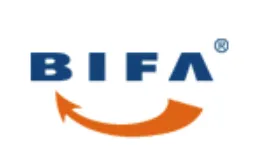
British International Freight Forwarder Association (BIFA)
Redfem House, Browells Lane, Feltham, Middlesex TW13 7EP
- Overview: BIFA is the leading trade association for UK-based freight forwarding companies, established to represent and support the interests of the UK logistics industry.
- Services: BIFA provides a wide range of services, including industry training, legal advice, policy advocacy, and dispute resolution. It also offers specialized courses and certifications that align with UK regulations and international standards.
- Membership Benefits: Members gain access to BIFA’s expert advice, educational programs, and participation in events that foster networking and knowledge sharing. BIFA also provides representation on national and international regulatory issues that affect the freight forwarding industry.
- Regional Focus: BIFA’s primary focus is on the UK market, ensuring that its members are well-versed in both domestic and international logistics challenges. The association’s understanding of UK-specific regulations and market dynamics is a key benefit for its members.
- Global Impact: Although BIFA is focused on the UK, it maintains strong connections with global organizations like FIATA, allowing its members to leverage international networks and influence.

5.3 National Customs Brokers & Forwarders Association of America (NCBFAA)
1200 18th Street, NW, #901 Washington, DC 20036
- Overview: Established in 1897, NCBFAA is one of the oldest and most influential trade associations in the United States, representing customs brokers, freight forwarders, and logistics service providers.
- Services: NCBFAA offers a variety of services including regulatory compliance support, industry advocacy, educational programs, and networking opportunities. It also provides members with access to legal resources and industry-specific training.
- Membership Benefits: Members benefit from NCBFAA’s robust advocacy efforts at the federal level, ensuring that their interests are represented in government policies. Additionally, members have access to exclusive educational resources, compliance tools, and industry events.
- Regional Focus: NCBFAA is focused on the U.S. market, with a deep understanding of the complex regulatory environment in the country. Its services are tailored to help members navigate U.S. customs regulations and international trade laws.
- Global Impact: While NCBFAA’s primary focus is on the United States, its influence extends globally through partnerships with international organizations. This allows its members to stay competitive and compliant in the global logistics arena.

5.4 Supply Chain and Logistics Association Australia (SCLAA)
Suite 202, 4/16 Beenleigh Redland Bay Road, Loganholme, Qld 4129 Australia
- Overview: SCLAA is Australia’s largest association for supply chain and logistics professionals, representing a broad spectrum of the industry including freight forwarders, logistics providers, and supply chain managers. Established to promote best practices and professional development in the industry, SCLAA plays a vital role in supporting Australia’s logistics sector.
- Services: SCLAA offers a variety of services including training programs, professional certifications, industry events, and workshops. It also provides members with access to industry research, networking opportunities, and advocacy on key policy issues affecting the logistics industry in Australia.
- Membership Benefits: Members of SCLAA benefit from access to a wealth of educational resources, networking events, and industry insights tailored specifically to the Australian market. The association also provides a platform for members to engage with government and industry stakeholders on policy and regulatory matters.
- Regional Focus: SCLAA focuses on the Australian logistics and supply chain sector, providing tailored resources and support that address the unique challenges of operating within Australia’s vast and varied geography.
- Global Impact: While SCLAA’s primary focus is on Australia, it maintains connections with international logistics organizations, allowing members to access global best practices and expand their international networks.
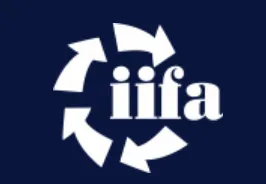
5.5 Irish International Freight Association (IIFA)
Swords, Dublin, Republic of Ireland
- Overview: The IIFA is the national representative body for freight forwarders in Ireland. Established to support and advocate for the Irish freight forwarding industry, IIFA plays a key role in promoting professional standards and providing essential resources to its members.
- Services: IIFA offers a range of services including training programs, industry certifications, networking opportunities, and representation on regulatory matters both within Ireland and at the EU level. The association also provides guidance on compliance with customs and trade regulations.
- Membership Benefits: Members benefit from IIFA’s focused support on regulatory issues, particularly those related to EU trade and customs regulations. The association also offers access to educational resources, industry events, and a strong network of logistics professionals within Ireland.
- Regional Focus: IIFA is focused on the Irish market, with a deep understanding of the specific challenges and opportunities for logistics providers in Ireland. Its expertise in EU regulations is particularly valuable for members involved in cross-border trade within Europe.
- Global Impact: IIFA’s influence extends beyond Ireland through its involvement with European and global logistics organizations. This allows its members to stay informed about international developments and connect with global industry players.
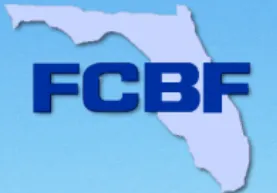
5.6 Florida Customs Brokers & Forwarders Association, Inc (FCBF)
Florida Customs Brokers & Forwarders Association, Inc 8228 NW 14 St Doral, FL 33126
- Overview: FCBF is one of the largest and most active trade associations in the U.S., specifically representing customs brokers and freight forwarders in Florida. Established to address the unique logistics needs of the region, FCBF is a key advocate for the industry in one of the busiest logistics hubs in the United States.
- Services: FCBF offers a wide range of services including educational programs, industry advocacy, networking events, and legal resources. The association is also involved in policy discussions at both the state and federal levels, ensuring that the interests of its members are well-represented.
- Membership Benefits: Members of FCBF benefit from access to tailored resources and support, including compliance assistance with U.S. customs regulations, training opportunities, and industry-specific events. The association also provides a strong platform for networking within the Florida logistics community.
- Regional Focus: FCBF’s focus is on the Florida market, with an emphasis on the unique logistical challenges and opportunities in this major gateway for international trade. The association’s expertise in customs and trade regulations is particularly beneficial for members operating in and out of Florida.
- Global Impact: While FCBF is regionally focused, its influence extends to the global stage through its active participation in national and international logistics organizations. This allows its members to stay competitive in global trade, particularly in Latin American and Caribbean markets.

5.7 JAS
6221 KENNEDY ROAD UNIT 2 MISSISSAUGA ON L5T 2S8
- Overview: JAS is a globally recognized logistics company with a strong presence in freight forwarding. Founded in 1978, JAS has grown to become a leading provider of supply chain solutions with a network spanning over 240 offices worldwide.
- Services: JAS offers a comprehensive range of services, including air and ocean freight forwarding, customs brokerage, warehousing, and supply chain management. The company also provides specialized services for various industries, such as automotive, fashion, and healthcare.
- Membership Benefits: JAS, as a member of several industry associations, benefits from staying at the forefront of industry developments and regulatory changes. These memberships allow JAS to offer its clients cutting-edge solutions and ensure compliance with global trade standards.
- Regional Focus: While JAS operates globally, it has significant regional expertise in key markets such as Europe, Asia, and North America. This regional focus allows JAS to offer tailored logistics solutions that address specific market challenges.
- Global Impact: JAS’s global network and extensive industry experience position it as a key player in the international logistics and freight forwarding sector. Its global impact is reinforced by its ability to provide end-to-end supply chain solutions across various regions.

5.8 IFL (International Freight Logistics)
Station Road, Coleshill Birmingham B46 1HT
- Overview: IFL is a specialized freight forwarder focused on providing personalized logistics solutions to its clients. Established to cater to specific niche markets, IFL emphasizes flexibility, reliability, and customer service.
- Services: IFL offers a range of services including air and sea freight, customs clearance, warehousing, and distribution. The company prides itself on its ability to tailor its services to meet the unique needs of each client, ensuring efficient and cost-effective logistics solutions.
- Membership Benefits: As a member of various freight forwarder associations, IFL benefits from industry insights, networking opportunities, and access to best practices. These memberships enhance IFL’s ability to provide high-quality services that comply with international standards.
- Regional Focus: IFL has a strong regional presence in Europe and Asia, with a particular focus on providing logistics solutions that address the specific challenges of these markets. This regional expertise allows IFL to offer customized services that cater to the unique requirements of its clients.
- Global Impact: Despite its regional focus, IFL’s participation in global networks allows it to provide comprehensive logistics solutions across multiple continents. Its global impact is evident in its ability to handle complex international shipments and navigate diverse regulatory environments.

5.9 California Freight Forwarder Association (CLN)
8530-A STEELE CREEK PLACE DRIVE CHARLOTTE, NC 28273
- Overview: The California Freight Forwarder Association (CLN) represents the interests of freight forwarders operating in California, one of the most significant logistics hubs in the United States. CLN is dedicated to addressing the specific needs of freight forwarders in this key market.
- Services: CLN provides a variety of services including advocacy on state and federal regulatory issues, industry-specific training programs, and networking events. The association also offers resources to help members stay compliant with California’s stringent environmental and labor laws.
- Membership Benefits: Members of CLN benefit from access to industry insights, legislative updates, and educational programs that are specifically tailored to the California logistics market. The association also provides a platform for members to connect with industry peers and engage with policymakers.
- Regional Focus: CLN is focused on the California market, offering resources and support that address the unique challenges of operating in this state, such as compliance with California’s environmental regulations and labor laws. This regional focus ensures that members are well-prepared to navigate the complexities of the California logistics environment.
- Global Impact: While CLN’s focus is regional, its influence extends globally through its participation in national and international logistics networks. This allows members to stay competitive in the global market, particularly in trade routes that pass through California’s major ports.

5.10 Big Sky Solutions
Phoenix, AZ
- Overview: Big Sky Solutions is a logistics and supply chain management company known for its customized approach to freight forwarding and logistics services. The company has a strong focus on innovation and technology to streamline operations and improve service delivery.
- Services: Big Sky Solutions offers a wide range of services, including freight forwarding, warehousing, distribution, and supply chain management. The company leverages technology to provide real-time tracking, advanced analytics, and tailored logistics solutions that meet the specific needs of its clients.
- Membership Benefits: Big Sky Solutions benefits from its involvement in various industry associations, which provides the company with access to the latest industry developments, regulatory updates, and networking opportunities. These memberships help Big Sky Solutions stay competitive and offer high-quality services to its clients.
- Regional Focus: While Big Sky Solutions operates globally, it has a strong presence in North America, where it tailors its services to meet the unique demands of the market. This regional focus allows the company to provide specialized solutions that address local market challenges.
- Global Impact: Big Sky Solutions has a significant global impact, offering services that span across multiple continents. Its use of technology and innovative approaches to logistics management have positioned it as a key player in the international logistics industry.
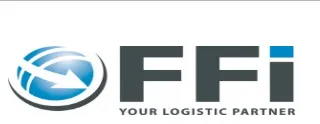
5.11 FFi (Freight Forwarders International)
Adenauerallee 10 D-20097 Hamburg
- Overview: FFi is a global network of independent freight forwarders that collaborates to provide comprehensive logistics solutions. The organization connects freight forwarders from different regions, enabling them to offer end-to-end services that cover all aspects of international shipping and logistics.
- Services: FFi members offer a full range of services, including air and sea freight, customs brokerage, warehousing, and distribution. The network facilitates collaboration among its members, allowing them to leverage each other’s strengths and provide seamless logistics solutions to their clients.
- Membership Benefits: Members of FFi benefit from the collective resources and expertise of the network, including access to a global network of partners, industry best practices, and joint marketing initiatives. This collaboration helps members expand their service offerings and compete more effectively in the global market.
- Regional Focus: FFi has a strong regional presence in key markets around the world, allowing members to offer localized services that meet the specific needs of their clients. The network’s regional focus ensures that members can address the unique challenges of their local markets while benefiting from global support.
- Global Impact: FFi’s global network enables it to provide comprehensive logistics solutions that span multiple regions. The organization’s ability to connect independent freight forwarders across the globe gives it a significant impact on the international logistics industry.
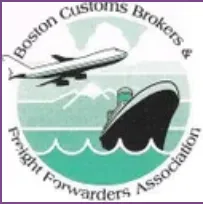
5.12 Boston Customs Brokers & Freight Forwarders Association (BCBFFA)
5 Fish Pier St W, Boston, MA 02210, USA
- Overview: The Boston Customs Brokers & Freight Forwarders Association (BCBFFA) is a regional trade association that represents the interests of customs brokers and freight forwarders in the Boston area. Established to address the specific needs of the logistics industry in New England, BCBFFA plays a vital role in supporting its members through advocacy and education.
- Services: BCBFFA provides a range of services, including industry training, regulatory updates, and networking opportunities. The association also advocates on behalf of its members in discussions with local and federal government agencies, ensuring that their interests are represented in policy decisions.
- Membership Benefits: Members of BCBFFA benefit from access to specialized training programs, industry news, and events that are tailored to the unique needs of the Boston logistics community. The association also offers opportunities for members to network with peers and engage with policymakers on issues affecting the industry.
- Regional Focus: BCBFFA is focused on the Boston and New England markets, offering resources and support that address the specific challenges of operating in this region. This regional expertise is particularly valuable for members dealing with the complexities of customs and trade regulations in the Boston area.
- Global Impact: While BCBFFA’s focus is regional, its members are involved in international trade, and the association’s advocacy efforts have an impact on global logistics practices. The association’s connections with national and international organizations help its members stay competitive in the global market.

5.13 ASP GLOBAL
Tullamarine 3043 Victoria, Australia
- Overview: ASP GLOBAL is a logistics company specializing in comprehensive supply chain solutions with a strong emphasis on global freight forwarding services. The company is known for its expertise in managing complex logistics operations across various industries, including automotive, aerospace, and consumer goods.
- Services: ASP GLOBAL offers a wide array of services, including international freight forwarding by air and sea, customs brokerage, warehousing, and distribution. The company also provides specialized logistics solutions tailored to specific industries, ensuring that each client’s unique needs are met.
- Membership Benefits: ASP GLOBAL’s membership in various logistics and trade associations allows it to stay ahead of industry trends and regulatory changes. These memberships provide ASP GLOBAL with access to a network of industry experts, best practices, and opportunities for collaboration with other leading logistics providers.
- Regional Focus: ASP GLOBAL operates on a global scale but has a strong regional presence in key markets such as North America, Europe, and Asia. This regional focus enables the company to offer localized solutions that address specific market conditions and regulatory environments.
- Global Impact: ASP GLOBAL’s extensive international network and industry expertise make it a significant player in the global logistics market. The company’s ability to manage large-scale, complex supply chains across multiple regions contributes to its strong global impact.
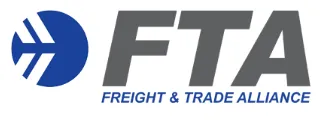
5.14 Freight Trade Alliance (FTA)
Suite 612, 566 St Kilda Road, Melbourne VIC 3004
- Overview: The Freight Trade Alliance (FTA) is an Australian-based organization that represents the interests of international trade and logistics service providers. FTA is committed to improving the regulatory environment and promoting the interests of its members within Australia and on the global stage.
- Services: FTA offers a range of services, including industry advocacy, training programs, and compliance support. The alliance also provides members with access to valuable industry insights, regulatory updates, and networking events that are specifically tailored to the needs of the Australian logistics community.
- Membership Benefits: Members of FTA benefit from the alliance’s strong advocacy efforts, which ensure that their interests are represented in government policy discussions. Additionally, members gain access to specialized training programs, industry news, and events that help them stay competitive in the logistics sector.
- Regional Focus: FTA is focused primarily on the Australian market, addressing the unique challenges faced by logistics providers in this region. The alliance’s regional expertise is particularly beneficial for members navigating Australia’s complex regulatory environment and trade policies.
- Global Impact: While FTA’s primary focus is on Australia, the alliance is actively involved in international trade discussions, giving it a broader influence on global logistics practices. FTA’s participation in global trade networks allows its members to stay informed about international trends and regulatory changes.
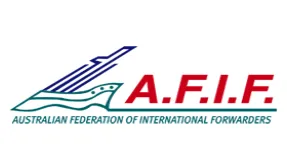
5.15 Australian Federation of International Freight Forwarders (AFIF)
Westfield Office Tower, Suite 403, Level 3, 152 Bunnerong Road Eastgardens, NSW, 2036
- Overview: The Australian Federation of International Freight Forwarders (AFIF) is a key industry body representing international freight forwarders in Australia. Established to support the interests of the freight forwarding community, AFIF plays a crucial role in promoting best practices and providing industry-specific resources.
- Services: AFIF offers a variety of services including industry training, regulatory compliance support, and advocacy on behalf of its members. The federation also provides networking opportunities and access to industry events, helping members stay connected with the broader logistics community.
- Membership Benefits: Members of AFIF benefit from access to specialized training programs, compliance assistance, and industry insights that are tailored to the Australian market. The federation’s advocacy efforts ensure that members’ interests are represented in discussions with government bodies and regulators.
- Regional Focus: AFIF is focused on the Australian market, providing resources and support that address the specific challenges of operating within this region. The federation’s deep understanding of Australia’s regulatory environment is a key asset for its members.
- Global Impact: Although AFIF’s focus is regional, its members are involved in international trade, and the federation’s advocacy efforts have a broader impact on global logistics practices. AFIF’s connections with international organizations allow its members to stay competitive in the global market while maintaining compliance with international standards.

5.16 Explorate
30 Florence St Teneriffe, QLD 4005
- Overview: Explorate is an Australian-based digital freight forwarding company that leverages technology to streamline logistics operations. Founded with a focus on transparency and efficiency, Explorate offers innovative solutions that cater to the modern needs of shippers and logistics providers.
- Services: Explorate provides a range of services including ocean and air freight forwarding, customs brokerage, and supply chain management. What sets Explorate apart is its digital platform, which offers real-time tracking, automated quotes, and analytics to optimize shipping operations.
- Membership Benefits: As a member of various logistics and technology associations, Explorate benefits from staying at the forefront of digital innovation in logistics. These memberships provide access to the latest technological advancements and industry best practices, which in turn benefit their clients through more efficient and transparent services.
- Regional Focus: While Explorate is based in Australia, its digital platform allows it to serve clients on a global scale. The company has a strong regional focus in the Asia-Pacific region, where it tailors its services to meet the specific needs of businesses operating in these markets.
- Global Impact: Explorate’s innovative approach to freight forwarding and its use of technology give it a growing influence in the global logistics industry. The company’s ability to simplify and optimize shipping processes for its clients has positioned it as a key player in the digital transformation of the logistics sector.

5.17 European Freight Forwarders Association (EFFA)
Cooperatie U.A. Postbus 414 NL-5900 AK VENLO
- Overview: The European Freight Forwarders Association (EFFA) is a major industry body representing the interests of freight forwarders across Europe. EFFA plays a vital role in promoting the industry and ensuring that European freight forwarders are well-represented in discussions on regulatory and trade policies within the European Union.
- Services: EFFA provides a range of services including advocacy at the EU level, industry training, and networking opportunities. The association also offers its members access to a wealth of industry resources, including market research, regulatory updates, and best practice guidelines.
- Membership Benefits: Members of EFFA benefit from the association’s strong advocacy efforts, which ensure that their interests are considered in EU legislation and trade negotiations. Additionally, members gain access to educational programs, industry events, and a network of logistics professionals across Europe.
- Regional Focus: EFFA’s primary focus is on the European market, addressing the specific challenges and opportunities within the EU. The association’s deep understanding of European trade regulations and market dynamics makes it an invaluable resource for its members.
- Global Impact: While EFFA’s focus is regional, its influence extends globally through its participation in international logistics discussions. EFFA’s advocacy for European freight forwarders helps shape global trade policies and ensures that its members remain competitive in the international market.

5.18 Alog Freight Forwarders
Puerto Madero Nº 9710, Office 18/19 A
- Overview: Alog Freight Forwarders is a logistics company based in Latin America, known for providing comprehensive freight forwarding and supply chain management services. The company has a strong presence in the region and is recognized for its commitment to reliability and customer service.
- Services: Alog offers a wide range of logistics services including ocean and air freight forwarding, customs brokerage, warehousing, and distribution. The company also provides specialized services for industries such as automotive, technology, and consumer goods, ensuring that each client’s unique needs are met.
- Membership Benefits: As a member of regional and international logistics associations, Alog benefits from access to industry insights, regulatory updates, and networking opportunities. These memberships help Alog stay competitive and provide high-quality services that meet international standards.
- Regional Focus: Alog’s primary focus is on Latin America, where it offers localized solutions that address the specific challenges of the region. The company’s deep understanding of the Latin American market allows it to provide tailored services that meet the needs of its clients.
- Global Impact: While Alog is regionally focused, its participation in global logistics networks allows it to provide comprehensive services across multiple continents. Alog’s ability to manage complex logistics operations in Latin America and beyond positions it as a key player in the global logistics industry.

5.19 INTEGRA INTERNATIONAL
Tierra de Barros 2, Coslada, 28823, Madrid (Spain)
- Overview: INTEGRA INTERNATIONAL is a global network of independent freight forwarders and logistics providers. The organization was established to facilitate collaboration among its members, enabling them to offer comprehensive logistics solutions worldwide. INTEGRA INTERNATIONAL emphasizes flexibility and personalized service through its network of trusted partners.
- Services: The organization provides a wide array of services, including air and ocean freight forwarding, customs brokerage, warehousing, and supply chain management. INTEGRA INTERNATIONAL’s network allows members to leverage each other’s strengths, offering clients seamless logistics services across different regions.
- Membership Benefits: Members of INTEGRA INTERNATIONAL benefit from the collective expertise of the network, access to global partnerships, and opportunities for collaboration on international shipments. Membership also provides a platform for sharing best practices and staying informed about industry developments.
- Regional Focus: While INTEGRA INTERNATIONAL operates globally, its strength lies in the regional expertise of its member companies. This regional focus ensures that logistics solutions are tailored to the specific needs and regulatory environments of different markets.
- Global Impact: INTEGRA INTERNATIONAL’s network spans multiple continents, giving it a significant global impact. The organization’s ability to provide end-to-end logistics solutions through its network of independent forwarders positions it as a key player in the global logistics industry.

5.20 Lognet Global
Entronque Av. 602 S/N, Col. Penon de los Banos, Del. V. Carranza, Mexico D.F. 15520
- Overview: Lognet Global is an international network of independent freight forwarders, established to help smaller logistics companies compete on a global scale. The network connects freight forwarders from around the world, enabling them to collaborate and offer a broader range of services to their clients.
- Services: Members of Lognet Global offer services such as air and sea freight forwarding, customs clearance, warehousing, and project cargo management. The network supports its members with tools and resources that help them expand their service offerings and improve operational efficiency.
- Membership Benefits: Lognet Global members benefit from access to a global network of partners, which allows them to offer comprehensive logistics solutions to their clients. The network also provides opportunities for joint marketing initiatives, industry training, and participation in global conferences.
- Regional Focus: Lognet Global operates with a strong regional presence in various markets, allowing members to offer localized services that cater to the specific needs of their clients. This regional focus is critical for addressing the unique challenges faced in different parts of the world.
- Global Impact: Despite being a network of independent forwarders, Lognet Global has a considerable global impact due to its extensive reach and collaborative approach. The network’s ability to connect forwarders across continents enhances the global competitiveness of its members.
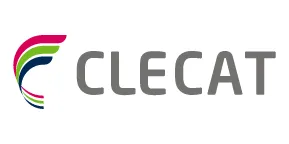
5.21 CLECAT
Av. Duque de Avila 9-7 PT-1000-138 Lisboa Portugal
- Overview: CLECAT (European Association for Forwarding, Transport, Logistics and Customs Services) is a leading trade association representing the interests of freight forwarders, logistics service providers, and customs agents in Europe. Founded in 1958, CLECAT plays a crucial role in shaping EU transport and logistics policies.
- Services: CLECAT offers a range of services including policy advocacy, industry research, and networking opportunities. The association represents its members in discussions with EU institutions, ensuring that the voice of the logistics industry is heard in the development of legislation and regulations.
- Membership Benefits: Members of CLECAT benefit from the association’s strong advocacy efforts at the EU level, as well as access to industry insights, regulatory updates, and events that facilitate networking and knowledge exchange. CLECAT also provides its members with a platform to influence policy and share best practices.
- Regional Focus: CLECAT’s primary focus is on the European market, addressing the specific regulatory and operational challenges faced by logistics providers in the EU. The association’s deep understanding of EU policies and regulations makes it an invaluable resource for its members.
- Global Impact: While CLECAT is focused on Europe, its influence extends globally due to the significant role Europe plays in international trade. CLECAT’s advocacy work and policy recommendations often have global implications, making it a key player in the international logistics arena.
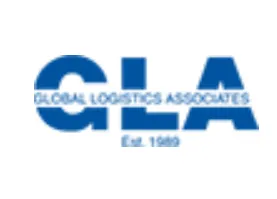
5.22 GLA (Global Logistics Alliance)
Augustapolder 72 unit 1.3 2992 SR Barendrecht 3005 LA ROTTERDAM THE NETHERLANDS
- Overview: GLA, or Global Logistics Alliance, is a network of logistics companies that spans the globe, bringing together freight forwarders, logistics providers, and related service companies. GLA focuses on creating a collaborative platform where members can share resources, knowledge, and business opportunities.
- Services: GLA provides a variety of services to its members, including international freight forwarding, customs brokerage, warehousing, and supply chain management. The network also offers a digital platform for members to connect, share leads, and collaborate on cross-border logistics projects.
- Membership Benefits: Members of GLA benefit from access to a global network of logistics professionals, which enhances their ability to offer comprehensive services to clients worldwide. Membership also includes access to industry events, training programs, and marketing support, helping members grow their businesses and stay competitive.
- Regional Focus: GLA operates globally but has strong regional networks that allow members to offer localized services tailored to specific market needs. This regional focus ensures that logistics solutions are effective and compliant with local regulations.
- Global Impact: GLA’s extensive global network gives it a significant impact on the international logistics industry. By facilitating collaboration across continents, GLA helps its members compete in the global market and provides them with the tools needed to manage complex international logistics operations.

5.23 Oman Logistics Association (OLA)
Sohar Port & Muscat Airport : Registered,Licenced Custom Brokers, RUWI, MUSCAT-SOHAR, OMAN, 798
- Overview: The Oman Logistics Association (OLA) is a key organization dedicated to supporting and promoting the logistics industry in Oman. OLA plays a vital role in developing the logistics sector in the region by providing resources, training, and advocacy for its members.
- Services: OLA offers a range of services including industry training, professional development programs, and networking opportunities. The association also provides its members with access to industry research, regulatory updates, and advocacy on behalf of the logistics sector in Oman.
- Membership Benefits: Members of OLA benefit from tailored support that addresses the specific needs of the Omani logistics market. This includes access to specialized training programs, opportunities to connect with other industry professionals, and representation in discussions with government bodies.
- Regional Focus: OLA is primarily focused on the logistics industry within Oman and the surrounding region. Its deep understanding of the local market and regulatory environment makes it an essential resource for logistics providers operating in this area.
- Global Impact: While OLA’s focus is regional, its efforts contribute to the broader Middle Eastern logistics sector’s development. By enhancing the capabilities of Omani logistics providers, OLA helps position Oman as a key player in the global logistics network.
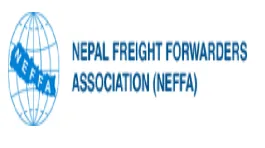
5.24 Nepal Freight Forwarders’ Association (NEFFA)
P.O. Box: 20283, Narayanchowr, Naxal, Kathmandu, Nepal
- Overview: The Nepal Freight Forwarders’ Association (NEFFA) is the primary body representing the interests of freight forwarders in Nepal. NEFFA works to support the development of the logistics industry in Nepal by providing training, advocacy, and industry resources to its members.
- Services: NEFFA offers a variety of services including industry advocacy, training programs, and access to market research. The association also provides a platform for members to engage with policymakers and stay informed about regulatory changes that affect the logistics sector in Nepal.
- Membership Benefits: Members of NEFFA benefit from access to specialized training programs that help them navigate the unique challenges of the logistics industry in Nepal. The association also provides opportunities for networking, industry collaboration, and advocacy on behalf of its members.
- Regional Focus: NEFFA is focused on the Nepalese market, addressing the specific logistical challenges faced by companies operating in the country. The association’s deep understanding of local infrastructure, regulations, and trade practices is a key benefit for its members.
- Global Impact: While NEFFA’s primary focus is regional, its involvement in international logistics discussions and its efforts to improve Nepal’s logistics infrastructure have broader implications. NEFFA’s work contributes to the integration of Nepal into the global supply chain, enhancing the country’s role in international trade.

5.25 Korea Freight Forwarders Association (KIFFA)
3rd FL., Jokson Hyundai Bldg, 80, Jokson-dong, Jongno-gu, Seoul, Korea
- Overview: The Korea Freight Forwarders Association (KIFFA) is the leading industry body representing freight forwarders in South Korea. Established to support and advance the logistics sector in Korea, KIFFA plays a crucial role in providing industry guidance, training, and advocacy for its members.
- Services: KIFFA offers a variety of services, including industry training, certification programs, regulatory updates, and networking opportunities. The association also advocates for the interests of Korean freight forwarders in discussions with government agencies and international organizations.
- Membership Benefits: Members of KIFFA benefit from access to tailored training programs, industry news, and events that facilitate knowledge sharing and professional development. The association also provides a platform for members to engage with policymakers and influence logistics-related regulations in Korea.
- Regional Focus: KIFFA is focused on the South Korean market, offering resources and support that address the specific challenges of operating within Korea’s logistics and trade environment. The association’s deep understanding of local regulations and market dynamics is a key advantage for its members.
- Global Impact: While KIFFA’s focus is regional, its influence extends globally through its participation in international logistics discussions and collaborations with global organizations. KIFFA’s efforts help position South Korea as a significant player in the global logistics industry.

5.26 Swedish International Freight Association (SIFA)
PO Box 5384 Stockholm SE-102 49
- Overview: The Swedish International Freight Association (SIFA) is the primary trade association for freight forwarders in Sweden. SIFA is dedicated to promoting the interests of the Swedish logistics industry, providing support, education, and advocacy for its members.
- Services: SIFA provides a range of services, including industry training, professional certifications, regulatory guidance, and networking events. The association also represents its members in discussions with Swedish government bodies and international trade organizations, ensuring that their interests are well-represented.
- Membership Benefits: Members of SIFA benefit from access to specialized training programs, industry insights, and opportunities to connect with other logistics professionals in Sweden and beyond. SIFA’s advocacy work also ensures that the voice of Swedish freight forwarders is heard in policy-making processes.
- Regional Focus: SIFA is focused on the Swedish market, offering resources and support that address the unique challenges of operating within Sweden’s logistics and trade environment. The association’s expertise in Swedish regulations and industry standards is a significant benefit for its members.
- Global Impact: While SIFA’s primary focus is regional, its involvement in European and global logistics discussions gives it broader influence. SIFA’s work helps integrate Sweden into the global supply chain, enhancing the competitiveness of Swedish freight forwarders in the international market.

5.27 Danish Freight Forwarder Association
Børsen Copenhagen K DK-1217
- Overview: The Danish Freight Forwarder Association represents the interests of freight forwarders in Denmark. The association is committed to supporting the Danish logistics industry through education, advocacy, and the promotion of best practices among its members.
- Services: The association offers a variety of services, including professional development programs, industry certifications, regulatory updates, and networking opportunities. It also provides members with a platform to engage with government bodies and influence logistics-related policies in Denmark.
- Membership Benefits: Members benefit from access to industry-specific training, legal advice, and events that facilitate networking and knowledge sharing. The association’s advocacy efforts ensure that the interests of Danish freight forwarders are represented in national and international policy discussions.
- Regional Focus: The Danish Freight Forwarder Association focuses on the Danish market, providing resources and support tailored to the specific needs of logistics providers operating within Denmark. The association’s understanding of local regulations and industry standards is a key asset for its members.
- Global Impact: Although the association is regionally focused, its members are involved in international trade, and the association’s participation in European and global logistics networks enhances its global influence. The association’s work helps Danish freight forwarders remain competitive in the global market.

5.28 Moonway OY
Oy Moonway Ab Ruissalontie 11 20200 Turku Finland
- Overview: Moonway OY is a Finland-based logistics and freight forwarding company known for its personalized and flexible approach to supply chain management. With a focus on innovation and efficiency, Moonway OY has established itself as a reliable partner in the Nordic logistics market.
- Services: Moonway OY offers a comprehensive range of services including international freight forwarding (both air and sea), customs clearance, warehousing, and distribution. The company also specializes in providing tailored logistics solutions for various industries, ensuring efficient and cost-effective operations.
- Membership Benefits: As a member of several Nordic and international logistics associations, Moonway OY benefits from access to industry best practices, regulatory updates, and networking opportunities. These memberships help Moonway OY stay competitive and provide high-quality services to its clients.
- Regional Focus: Moonway OY primarily focuses on the Nordic region, offering logistics solutions that are specifically designed to meet the needs of businesses operating in Finland and surrounding countries. This regional expertise allows Moonway OY to navigate the unique challenges of the Nordic market effectively.
- Global Impact: While Moonway OY is regionally focused, its participation in international logistics networks allows it to extend its services globally. The company’s ability to manage complex supply chains across different regions enhances its influence in the global logistics market.
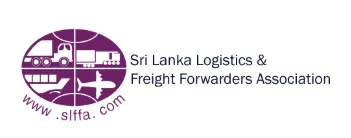
5.29 Sri Lanka Logistics and Freight Forwarder Association (SLFFA)
37 D, Torrington Avenue, Colombo 00700, Sri Lanka
- Overview: The Sri Lanka Logistics and Freight Forwarder Association (SLFFA) is the leading trade association representing the interests of logistics service providers in Sri Lanka. SLFFA plays a critical role in promoting the development of the logistics sector in Sri Lanka by providing industry support, advocacy, and education.
- Services: SLFFA offers a variety of services to its members, including industry training, certification programs, networking opportunities, and advocacy on behalf of the logistics sector. The association also provides resources and guidance on compliance with national and international trade regulations.
- Membership Benefits: Members of SLFFA benefit from access to specialized training programs, industry insights, and opportunities to connect with other logistics professionals in Sri Lanka and beyond. The association’s advocacy efforts ensure that the interests of its members are represented in discussions with government bodies and international trade organizations.
- Regional Focus: SLFFA is focused on the Sri Lankan market, providing resources and support that address the unique challenges of operating within Sri Lanka’s logistics and trade environment. The association’s deep understanding of local regulations and market dynamics is a key advantage for its members.
- Global Impact: While SLFFA’s primary focus is regional, its involvement in international logistics discussions and collaborations with global organizations extends its influence. SLFFA’s efforts contribute to integrating Sri Lanka into the global supply chain, enhancing the country’s role in international trade.
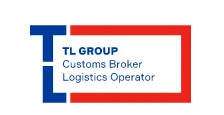
5.30 Russian Freight Forwarders Association (TLG Group)
Russia, St. Petersburg Gapsalskaya st., 1 Business center, Gapsal
- Overview: The Russian Freight Forwarders Association, known as TLG Group, is a prominent industry body representing the interests of freight forwarders in Russia. TLG Group is dedicated to supporting the growth and development of the logistics sector in Russia by providing resources, advocacy, and industry standards.
- Services: TLG Group offers a wide range of services, including professional development programs, industry certifications, regulatory guidance, and networking events. The association also represents its members in discussions with Russian government bodies and international trade organizations, ensuring that their interests are well-represented.
- Membership Benefits: Members of TLG Group benefit from access to specialized training programs, industry news, and opportunities to connect with other logistics professionals across Russia and internationally. The association’s advocacy work also ensures that the voice of Russian freight forwarders is heard in policy-making processes.
- Regional Focus: TLG Group is focused on the Russian market, offering resources and support that address the specific challenges of operating within Russia’s vast and diverse logistics landscape. The association’s expertise in Russian regulations and industry standards is a significant benefit for its members.
- Global Impact: While TLG Group’s primary focus is regional, its involvement in European and global logistics discussions gives it broader influence. TLG Group’s work helps integrate Russia into the global supply chain, enhancing the competitiveness of Russian freight forwarders in the international market.
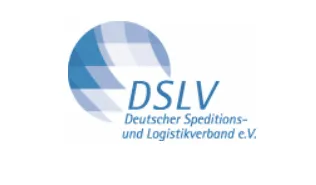
5.31 Deutscher Speditions- und Logistikverband e.V. (DSLV)
Deutscher Speditions- und Logistikverband e.V. (DSLV) Weberstraße 77 53113 Bonn
- Overview: The Deutscher Speditions- und Logistikverband e.V. (DSLV) is the German Freight Forwarding and Logistics Association, representing the interests of logistics service providers in Germany. DSLV plays a crucial role in shaping the logistics industry in Germany by providing guidance, advocacy, and industry standards.
- Services: DSLV offers a wide range of services, including industry training, certifications, regulatory updates, and networking opportunities. The association also provides legal and compliance support to help members navigate the complex regulatory environment in Germany and the EU.
- Membership Benefits: Members of DSLV benefit from access to specialized training programs, industry insights, and opportunities to engage with policymakers on issues affecting the logistics sector. The association’s strong advocacy efforts ensure that the interests of German freight forwarders are well-represented in both national and international policy discussions.
- Regional Focus: DSLV is focused on the German market, providing resources and support tailored to the needs of logistics providers operating within Germany. The association’s deep understanding of German and EU regulations is a significant advantage for its members.
- Global Impact: While DSLV’s primary focus is on Germany, its influence extends globally due to Germany’s central role in European and international trade. DSLV’s participation in global logistics discussions and collaborations with international organizations enhances the global competitiveness of its members.

5.32 Federation of Freight Forwarders Associations in India (FFFAI)
311 – 313, 3 rd Floor, Mahinder Chambers, Opp. Dukes Factory, W.T. Patil Marg, Chembur, Mumbai, Maharashtra 400071, India
- Overview: The Federation of Freight Forwarders Associations in India (FFFAI) is the apex body representing the interests of freight forwarders in India. FFFAI plays a key role in the development of the logistics industry in India by providing industry support, advocacy, and educational resources.
- Services: FFFAI offers a variety of services to its members, including industry training, certification programs, regulatory guidance, and networking events. The federation also advocates for the interests of Indian freight forwarders in discussions with government bodies and international trade organizations.
- Membership Benefits: Members of FFFAI benefit from access to specialized training programs, industry insights, and opportunities to connect with other logistics professionals across India and internationally. The federation’s advocacy work ensures that the interests of its members are represented in policy-making processes at both the national and international levels.
- Regional Focus: FFFAI is focused on the Indian market, offering resources and support that address the specific challenges of operating within India’s diverse and complex logistics landscape. The federation’s deep understanding of local regulations and trade practices is a key advantage for its members.
- Global Impact: While FFFAI’s primary focus is regional, its involvement in international logistics discussions and collaborations with global organizations extends its influence. FFFAI’s efforts contribute to integrating India into the global supply chain, enhancing the country’s role in international trade.

5.33 French Freight Forwarders Association (ACFA)
Zone Cargo 6- 2 rue des Voyelles, Bâtiment SODEXI 3500, 95723 Roissy CDG Cedex 1
- Overview: The French Freight Forwarders Association (ACFA) is a leading industry body representing the interests of freight forwarders in France. ACFA is dedicated to promoting the logistics sector in France by providing resources, advocacy, and industry standards.
- Services: ACFA offers a range of services, including professional development programs, industry certifications, regulatory guidance, and networking opportunities. The association also represents its members in discussions with French government bodies and international trade organizations, ensuring that their interests are well-represented.
- Membership Benefits: Members of ACFA benefit from access to specialized training programs, industry news, and opportunities to connect with other logistics professionals across France and internationally. The association’s advocacy efforts ensure that the voice of French freight forwarders is heard in policy-making processes at both the national and international levels.
- Regional Focus: ACFA is focused on the French market, providing resources and support tailored to the needs of logistics providers operating within France. The association’s expertise in French and EU regulations is a significant benefit for its members.
- Global Impact: While ACFA’s primary focus is on France, its influence extends globally due to France’s significant role in European and international trade. ACFA’s participation in global logistics discussions and collaborations with international organizations enhances the global competitiveness of its members.

5.34 Sabay Logistics
Kore Sehitleri cad. No.37/10 Zincirlikuyu 34394 Istanbul
- Overview: Sabay Logistics is a Cambodia-based logistics company known for its comprehensive range of freight forwarding and logistics services. Sabay Logistics is committed to providing reliable and efficient logistics solutions to businesses in Cambodia and across Southeast Asia.
- Services: Sabay Logistics offers a variety of services including air and sea freight forwarding, customs brokerage, warehousing, and distribution. The company also provides specialized logistics solutions tailored to the unique needs of different industries, ensuring smooth and efficient supply chain operations.
- Membership Benefits: As a member of regional and international logistics networks, Sabay Logistics benefits from access to industry best practices, training programs, and opportunities for collaboration with other logistics providers. These memberships enhance the company’s ability to offer high-quality services that meet international standards.
- Regional Focus: Sabay Logistics has a strong regional focus on Cambodia and Southeast Asia, offering localized services that address the specific challenges of operating in these markets. The company’s deep understanding of regional trade practices and regulations allows it to provide tailored logistics solutions to its clients.
- Global Impact: While Sabay Logistics primarily focuses on the Southeast Asian market, its participation in international logistics networks enables it to provide services on a global scale. The company’s ability to connect with global partners and manage international shipments enhances its impact in the global logistics industry.
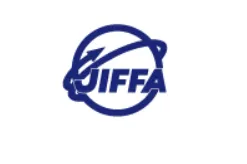
5.35 Japan Freight Forwarders Association (JIFFA)
Japan
- Overview: The Japan Freight Forwarders Association (JIFFA) is a leading industry body representing the interests of freight forwarders in Japan. Established to support the growth of the logistics industry in Japan, JIFFA plays a vital role in providing guidance, training, and advocacy for its members.
- Services: JIFFA offers a wide range of services including industry training, certification programs, regulatory updates, and networking opportunities. The association also provides its members with resources to navigate the complex regulatory environment in Japan and ensure compliance with international trade laws.
- Membership Benefits: Members of JIFFA benefit from access to specialized training programs, industry insights, and opportunities to engage with policymakers on issues affecting the logistics sector. The association’s strong advocacy efforts ensure that the interests of Japanese freight forwarders are well-represented in both national and international policy discussions.
- Regional Focus: JIFFA is focused on the Japanese market, offering resources and support tailored to the needs of logistics providers operating within Japan. The association’s deep understanding of Japanese regulations and market dynamics is a significant advantage for its members.
- Global Impact: While JIFFA’s primary focus is on Japan, its influence extends globally due to Japan’s significant role in international trade. JIFFA’s participation in global logistics discussions and collaborations with international organizations enhances the global competitiveness of its members.

5.36 Penang Freight Forwarders Association (PFFA)
Block A Unit 9, MAS Air Cargo Complex, Penang International Air Port, Jalan Garuda, 11900 Penang
- Overview: The Penang Freight Forwarders Association (PFFA) is a regional trade association representing the interests of freight forwarders in Penang, Malaysia. PFFA is dedicated to promoting the logistics industry in Penang and providing support, advocacy, and resources to its members.
- Services: PFFA offers a variety of services including industry training, professional development programs, regulatory guidance, and networking opportunities. The association also advocates on behalf of its members in discussions with government bodies and provides resources to help members navigate Malaysia’s regulatory environment.
- Membership Benefits: Members of PFFA benefit from access to specialized training programs, industry insights, and opportunities to connect with other logistics professionals in Penang and across Malaysia. The association’s advocacy efforts ensure that the interests of its members are well-represented in policy discussions.
- Regional Focus: PFFA is focused on the Penang region, offering resources and support that address the specific challenges of operating within Penang’s logistics and trade environment. The association’s expertise in local regulations and industry standards is a significant benefit for its members.
- Global Impact: While PFFA’s primary focus is regional, its involvement in national and international logistics networks extends its influence beyond Penang. PFFA’s efforts contribute to the integration of Penang’s logistics sector into the global supply chain, enhancing the region’s role in international trade.
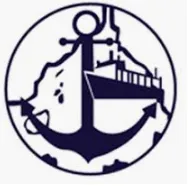
5.37 Philippine International Sea Freight Forwarders Association (PISFA)
Rm. 226, Skyfreight Center., Ninoy Aquino Ave., Santo Niño, 1704, Paranaque City, Philippines
- Overview: The Philippine International Sea Freight Forwarders Association (PISFA) is the leading trade association representing sea freight forwarders in the Philippines. PISFA is dedicated to promoting the growth and development of the sea freight industry in the Philippines through advocacy, education, and industry support.
- Services: PISFA offers a range of services including industry training, certification programs, regulatory updates, and networking opportunities. The association also provides members with resources to help them navigate the complex regulatory environment in the Philippines and comply with international shipping standards.
- Membership Benefits: Members of PISFA benefit from access to specialized training programs, industry insights, and opportunities to connect with other logistics professionals in the Philippines and internationally. PISFA’s advocacy efforts ensure that the interests of its members are represented in policy discussions at both the national and international levels.
- Regional Focus: PISFA is focused on the Philippine market, providing resources and support tailored to the needs of sea freight forwarders operating within the country. The association’s deep understanding of local regulations and market dynamics is a key advantage for its members.
- Global Impact: While PISFA’s primary focus is on the Philippines, its involvement in international logistics discussions and collaborations with global organizations enhances its influence. PISFA’s efforts contribute to integrating the Philippine sea freight industry into the global supply chain, boosting the country’s role in international trade.

5.38 Singapore Shipping Association (SSA)
59 Tras Street, Singapore 078998
- Overview: The Singapore Shipping Association (SSA) is one of the most prominent trade organizations representing the interests of the shipping and maritime industry in Singapore. SSA plays a crucial role in advancing Singapore’s position as a leading global maritime hub through advocacy, training, and industry collaboration.
- Services: SSA offers a comprehensive range of services, including industry training, certification programs, regulatory guidance, and networking events. The association also provides a platform for members to engage with government agencies and international organizations to influence maritime policies and regulations.
- Membership Benefits: Members of SSA benefit from access to cutting-edge industry knowledge, training programs, and opportunities to connect with a global network of maritime professionals. SSA’s strong advocacy efforts ensure that the interests of Singapore’s shipping and logistics sectors are well-represented in policy-making processes.
- Regional Focus: SSA is focused on Singapore and the broader Southeast Asian region, providing resources and support tailored to the needs of maritime and logistics companies operating in this key global shipping hub. The association’s deep expertise in regional regulations and industry standards is a significant benefit for its members.
- Global Impact: Although SSA is regionally focused, its influence extends globally due to Singapore’s strategic importance in international trade. SSA’s involvement in global maritime discussions and its collaborations with international shipping organizations enhance its members’ competitiveness on the world stage.
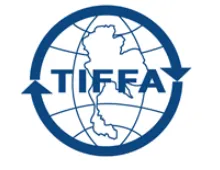
5.39 Thai International Freight Forwarders Association (TIFFA)
19 SRINAKARIN RD, 4TH FLOOR, BANGNA, BANGNA NUEA , BANGKOK 10260 THAILAND
- Overview: The Thai International Freight Forwarders Association (TIFFA) is the primary trade association representing freight forwarders in Thailand. TIFFA is committed to supporting the logistics industry in Thailand through advocacy, education, and industry collaboration.
- Services: TIFFA offers a variety of services including industry training, professional development programs, regulatory updates, and networking opportunities. The association also advocates on behalf of its members in discussions with Thai government bodies and international trade organizations.
- Membership Benefits: Members of TIFFA benefit from access to specialized training programs, industry insights, and opportunities to connect with other logistics professionals in Thailand and beyond. The association’s advocacy efforts ensure that the interests of its members are well-represented in policy discussions at both the national and international levels.
- Regional Focus: TIFFA is focused on the Thai market, providing resources and support tailored to the needs of logistics providers operating within Thailand. The association’s deep understanding of local regulations and market dynamics is a key advantage for its members.
- Global Impact: While TIFFA’s primary focus is on Thailand, its involvement in regional and international logistics networks extends its influence globally. TIFFA’s efforts contribute to integrating Thailand’s logistics sector into the global supply chain, enhancing the country’s role in international trade.

5.40 DSV
5th Floor, SCSC Building, 30 Phan Thuc Duyen Street, Tan Binh Dist. Ho Chi Minh City
- Overview: DSV is a global logistics company based in Denmark, offering a wide range of services across the entire supply chain. With a presence in over 80 countries, DSV is one of the largest logistics companies in the world, known for its extensive network and comprehensive service offerings.
- Services: DSV provides a full suite of logistics services including air and sea freight forwarding, road transport, warehousing, distribution, and supply chain management. The company also offers specialized logistics solutions for industries such as automotive, healthcare, and retail, ensuring efficient and tailored service delivery.
- Membership Benefits: DSV’s membership in various global logistics networks and trade associations allows it to stay at the forefront of industry developments. These memberships provide DSV with access to the latest industry trends, regulatory updates, and opportunities for collaboration with other leading logistics providers.
- Regional Focus: While DSV operates on a global scale, it maintains strong regional expertise in key markets across Europe, Asia, and the Americas. This regional focus allows DSV to offer localized logistics solutions that address specific market conditions and regulatory environments.
- Global Impact: DSV’s extensive global network and industry expertise make it a significant player in the international logistics market. The company’s ability to manage complex supply chains across multiple regions has positioned it as a leader in the global logistics industry, with a strong impact on international trade and supply chain efficiency.
6. Membership Benefits
Joining a freight forwarders association offers numerous advantages that can significantly enhance the operations and competitive edge of logistics companies. These benefits extend across various facets of the industry, providing members with valuable resources, support, and opportunities for growth.
Networking
One of the primary benefits of joining a freight forwarders association is the opportunity to network with industry peers. Members gain access to a broad network of professionals, including other freight forwarders, logistics providers, and key stakeholders in the supply chain. This networking can lead to partnerships, collaborations, and business opportunities that may not be available outside of these associations. Additionally, members can share best practices, exchange knowledge, and stay connected with the latest industry trends through regular meetings, conferences, and events organized by the associations.
Training and Professional Development
Freight forwarders associations often provide extensive training programs and professional development opportunities. These programs are designed to help members stay current with industry standards, regulations, and emerging technologies. Training sessions may cover a wide range of topics, including customs procedures, logistics management, international trade laws, and digital transformation in logistics. By participating in these programs, members can enhance their skills, improve their operational efficiency, and ensure compliance with global standards, thereby increasing their overall competitiveness.
Advocacy and Representation
Freight forwarders associations play a crucial role in advocating for the interests of their members at both national and international levels. These associations represent the industry in discussions with government bodies, regulatory agencies, and international trade organizations. They work to influence policies, regulations, and trade agreements that impact the logistics sector, ensuring that the voice of freight forwarders is heard in important decision-making processes. Membership in these associations provides companies with a platform to contribute to policy discussions and benefit from the collective advocacy efforts that protect and promote the interests of the logistics industry.
Access to Industry Resources
Members of freight forwarders associations have exclusive access to a wealth of industry resources. These resources include market research, industry reports, regulatory updates, and best practice guidelines. Associations often publish newsletters, bulletins, and reports that keep members informed about the latest developments in the logistics sector, such as changes in trade laws, advancements in technology, and shifts in market dynamics. Access to these resources enables members to make informed business decisions, stay ahead of competitors, and adapt to changes in the global logistics landscape.
Legal and Compliance Support
Navigating the complex regulatory environment of international logistics can be challenging. Freight forwarders associations often provide legal and compliance support to their members, helping them understand and comply with the various regulations that govern the industry. This support may include access to legal experts, compliance tools, and guidance on issues such as customs regulations, trade compliance, and environmental standards. By ensuring that members remain compliant with relevant laws and regulations, associations help mitigate risks and prevent costly legal issues.
Increased Credibility and Reputation
Membership in a reputable freight forwarders association enhances a company’s credibility and reputation within the industry. Being part of an association signals to clients and partners that the company is committed to maintaining high standards of service, professionalism, and ethical business practices. This increased credibility can lead to more business opportunities, stronger client relationships, and a competitive advantage in the marketplace.
In summary, joining a freight forwarders association offers a comprehensive set of benefits that can significantly contribute to the success and growth of logistics companies. From networking and training to advocacy and access to critical resources, these associations provide members with the tools and support they need to thrive in the competitive world of international logistics.
7. Industry Standards and Certifications
Freight forwarders associations play a crucial role in establishing and maintaining industry standards and certifications that ensure the quality, reliability, and professionalism of logistics services. These standards and certifications not only help streamline operations but also build trust among clients and partners, ensuring that the logistics industry operates efficiently and consistently across the globe.
Industry Standards
Freight forwarders associations often develop and enforce a set of industry standards that their members must adhere to. These standards cover various aspects of logistics and freight forwarding, including operational procedures, documentation, safety protocols, and ethical business practices. By adhering to these standards, members ensure that their services meet the highest levels of quality and reliability, which is critical in the fast-paced and complex world of international logistics.
Associations may also collaborate with international organizations such as the International Federation of Freight Forwarders Associations (FIATA) to align their standards with global best practices. This alignment ensures consistency across borders, making it easier for freight forwarders to operate in multiple countries while maintaining a uniform level of service.
Certifications
Certifications offered by freight forwarders associations are a testament to a company’s commitment to excellence and compliance with industry standards. These certifications are often recognized globally and can significantly enhance a company’s credibility and marketability. Some common certifications provided by these associations include:
- FIATA Diploma in Freight Forwarding: Recognized worldwide, this certification is offered by the International Federation of Freight Forwarders Associations (FIATA) and demonstrates a freight forwarder’s knowledge and proficiency in international trade and logistics.
- Customs Broker Certification: Many associations offer certifications specific to customs brokerage, ensuring that members are well-versed in customs regulations, procedures, and compliance. This certification is particularly important for companies involved in cross-border trade.
- Dangerous Goods Certification: Handling dangerous goods requires specialized knowledge and adherence to strict safety protocols. Associations often provide certifications that confirm a freight forwarder’s ability to manage the transportation of hazardous materials safely and in compliance with international regulations.
- ISO 9001 Certification: While not exclusive to freight forwarders associations, ISO 9001 certification is often supported by these associations as a standard for quality management systems. This certification ensures that a company’s processes are efficient, consistent, and focused on customer satisfaction.
- Green Logistics Certification: With increasing emphasis on sustainability, some associations offer certifications that recognize companies implementing environmentally friendly logistics practices. This certification highlights a company’s commitment to reducing its environmental impact and promoting sustainable logistics solutions.
Importance of Certifications
The certifications offered by freight forwarders associations are vital for maintaining quality and reliability in the logistics industry. These certifications provide several key benefits:
- Market Differentiation: Certifications help companies stand out in a competitive market by demonstrating their commitment to excellence and compliance with industry standards. Clients and partners are more likely to choose certified freight forwarders, knowing that they meet rigorous standards of quality and professionalism.
- Enhanced Credibility: Earning certifications from respected associations enhances a company’s credibility and reputation. It signals to clients, partners, and regulatory bodies that the company operates at the highest level of integrity and competence.
- Regulatory Compliance: Certifications often require companies to stay updated with the latest regulations and industry developments. This ensures that certified companies are always in compliance with national and international laws, reducing the risk of legal issues and penalties.
- Operational Efficiency: Adhering to industry standards and achieving certifications often leads to more streamlined and efficient operations. Companies that follow standardized procedures can reduce errors, improve service delivery, and increase customer satisfaction.
- Global Recognition: Many certifications offered by freight forwarders associations are recognized internationally. This global recognition allows certified companies to expand their operations into new markets with confidence, knowing that their certifications will be respected and valued by clients and partners worldwide.
In summary, the standards and certifications offered by freight forwarders associations are essential tools for ensuring that the logistics industry operates with the highest levels of quality, reliability, and professionalism. These certifications not only enhance a company’s credibility and marketability but also contribute to the overall efficiency and consistency of global logistics operations.
8. Services and Support Offered by Associations
Freight forwarders associations provide a wide range of support services designed to enhance the operations, competitiveness, and sustainability of their members. These services are crucial for helping freight forwarders navigate the complexities of the logistics industry, ensuring they remain compliant, informed, and competitive in a global marketplace.
Legal Assistance
Legal issues are a significant concern in the freight forwarding industry, where companies must comply with a myriad of regulations and trade laws. Associations often provide legal assistance to help members navigate these challenges. This support includes:
- Regulatory Guidance: Associations offer guidance on complying with national and international regulations, such as customs laws, trade sanctions, and environmental regulations. This helps members avoid legal pitfalls and ensures smooth operations.
- Legal Representation: In case of disputes or legal challenges, associations may offer or facilitate access to legal representation. This can be crucial for defending against claims or negotiating settlements in complex cases involving international trade and logistics.
- Contract Review and Support: Associations often provide services to review contracts and agreements, ensuring that their members’ interests are protected and that they are not exposed to unnecessary risks.
The legal assistance provided by these associations is invaluable in helping freight forwarders mitigate risks, comply with laws, and resolve disputes effectively.
Industry Advocacy
Freight forwarders associations play a crucial role in advocating for the interests of their members at both national and international levels. This advocacy includes:
- Policy Influence: Associations lobby government bodies and international organizations to shape policies and regulations that affect the logistics industry. They work to ensure that laws and regulations are fair, practical, and beneficial for the industry.
- Representation in Trade Negotiations: Associations often represent their members in trade negotiations, ensuring that the needs and concerns of the logistics sector are considered in international trade agreements and treaties.
- Crisis Management: In times of industry-wide challenges, such as economic downturns, pandemics, or geopolitical tensions, associations advocate for government support and intervention to protect the interests of their members.
Industry advocacy ensures that the voices of freight forwarders are heard in policy-making processes, leading to a more favorable business environment.
Educational Programs
Continuous learning and professional development are vital in the fast-evolving logistics industry. Associations provide a variety of educational programs designed to keep their members up-to-date with the latest industry trends, technologies, and regulations:
- Training Courses: Associations offer a wide range of training courses on topics such as customs procedures, logistics management, digital technologies, and international trade laws. These courses help members improve their skills and knowledge, making them more competitive in the market.
- Certifications: Many associations provide certification programs that recognize members’ expertise in specific areas of logistics and freight forwarding. These certifications enhance a company’s credibility and can be a valuable marketing tool.
- Workshops and Seminars: Associations frequently organize workshops and seminars on emerging trends, challenges, and opportunities in the logistics industry. These events provide members with the latest information and practical insights that can be applied to their businesses.
- Conferences and Networking Events: Educational conferences and networking events allow members to learn from industry experts, share best practices, and build relationships with peers, clients, and partners.
The educational programs offered by associations help freight forwarders stay ahead of industry changes, improve operational efficiency, and maintain compliance with global standards.
Other Support Services
In addition to legal assistance, advocacy, and education, freight forwarders associations provide several other support services that benefit their members:
- Market Research and Data Access: Associations often conduct market research and gather industry data, providing members with valuable insights into market trends, customer preferences, and competitive dynamics. This information helps members make informed strategic decisions.
- Access to Technology and Innovation: Associations may offer access to the latest technologies and innovations in logistics, such as digital platforms for freight management, supply chain analytics, and automation tools. These resources help members enhance their operational capabilities and stay competitive in the digital age.
- Insurance and Risk Management Services: Some associations offer insurance and risk management services tailored to the logistics industry. These services help members protect their assets and manage the risks associated with freight forwarding.
Benefits to Freight Forwarders and Businesses
The services and support provided by freight forwarders associations are crucial for helping members navigate the complexities of the logistics industry. By offering legal assistance, advocacy, education, and other support services, associations help freight forwarders:
- Reduce Operational Risks: Legal assistance and compliance support reduce the risk of legal issues and ensure that members operate within the bounds of the law.
- Influence Industry Policies: Advocacy efforts ensure that the interests of freight forwarders are represented in policy-making processes, leading to a more favorable business environment.
- Stay Competitive: Educational programs and access to the latest technologies help members improve their skills, adopt new innovations, and stay competitive in the global market.
- Make Informed Decisions: Access to market research, data, and industry insights enables members to make informed strategic decisions that drive business growth.
In summary, the comprehensive services and support offered by freight forwarders associations provide members with the tools, resources, and expertise they need to thrive in a complex and competitive industry. These associations play a critical role in enhancing the capabilities, resilience, and success of freight forwarders and logistics businesses worldwide.
9. Legal and Regulatory Guidance
Freight forwarders associations play a pivotal role in helping their members navigate the complex and ever-changing landscape of international freight forwarding regulations. These associations provide essential legal and regulatory guidance that ensures compliance, reduces risk, and enhances operational efficiency for their members.
Role of Associations in Providing Guidance on International Freight Forwarding Regulations
Freight forwarders operate in a highly regulated industry, where compliance with international, national, and regional laws is crucial for smooth operations. Associations serve as a key resource for staying informed about these regulations and ensuring that their members are compliant.
- Regulatory Updates: Associations monitor and disseminate information about changes in international trade laws, customs regulations, and other relevant legal frameworks. They provide timely updates to their members, helping them stay ahead of new requirements and avoid potential legal pitfalls.
- Interpretation of Regulations: Understanding complex legal texts can be challenging for freight forwarders. Associations often break down and interpret these regulations, providing clear and actionable guidance that members can easily implement in their operations.
- Best Practices for Compliance: Associations develop and share best practices for complying with various legal requirements. This includes standardized procedures, documentation guidelines, and compliance checklists that help members ensure they meet all regulatory obligations.
- Access to Legal Experts: Many associations provide access to legal experts who specialize in international trade and logistics. These experts can offer personalized advice on complex legal issues, helping members resolve disputes, negotiate contracts, and address compliance challenges.
How Associations Help Members Navigate Customs Procedures and Trade Laws
Customs procedures and trade laws are among the most critical aspects of international freight forwarding. Missteps in these areas can lead to delays, fines, and even the seizure of goods. Associations provide crucial support to help members navigate these challenges effectively.
- Customs Compliance Training: Associations offer training programs that cover the intricacies of customs regulations in different countries. These programs teach members how to prepare accurate documentation, classify goods correctly, and comply with specific customs requirements, reducing the risk of delays or penalties.
- Trade Law Advocacy: Associations often advocate on behalf of their members in trade law discussions, both nationally and internationally. They work to influence trade agreements, tariffs, and other policies that affect the logistics industry, ensuring that the interests of freight forwarders are represented.
- Guidance on Free Trade Agreements (FTAs): Many associations provide detailed guidance on how to leverage free trade agreements to reduce costs and streamline cross-border shipments. This includes understanding rules of origin, tariff schedules, and documentation requirements for different FTAs.
- Support with Customs Documentation: Associations offer resources and tools to help members prepare and submit the necessary customs documentation. This support includes templates, checklists, and automated systems that ensure all paperwork is completed accurately and in compliance with relevant laws.
- Resolution of Customs Disputes: When customs disputes arise, associations can assist members in resolving these issues. This may involve providing legal support, facilitating negotiations with customs authorities, or advocating for members in cases of unfair treatment.
- Global Trade Compliance: Associations also provide guidance on global trade compliance, helping members understand and adhere to international sanctions, export controls, and other trade regulations. This is particularly important for companies dealing with sensitive goods or operating in regions with complex regulatory environments.
Benefits of Legal and Regulatory Guidance from Associations
The legal and regulatory guidance provided by freight forwarders associations offers several key benefits:
- Risk Mitigation: By staying informed about legal requirements and best practices, members can significantly reduce the risk of non-compliance, which can lead to costly fines, legal disputes, or the loss of business.
- Operational Efficiency: Proper guidance on customs procedures and trade laws helps streamline operations, reducing delays and ensuring that goods move smoothly across borders.
- Enhanced Credibility: Companies that comply with all relevant regulations and trade laws build trust with clients, partners, and regulatory authorities, enhancing their reputation and competitive standing in the industry.
- Informed Decision-Making: Access to up-to-date legal and regulatory information enables members to make informed decisions about their operations, contracts, and strategies, ensuring long-term success in a complex global market.
In summary, freight forwarders associations provide essential legal and regulatory guidance that empowers their members to navigate the complexities of international trade with confidence. By offering training, resources, and expert support, these associations help ensure that their members remain compliant, efficient, and competitive in the global logistics industry.
10. Networking and Collaboration Opportunities
Networking and collaboration are fundamental to the success of businesses in the logistics and freight forwarding industry. Associations provide a platform where members can connect, share insights, and build partnerships that drive business growth and innovation. These opportunities are crucial for staying competitive and informed in a rapidly evolving global market.
Importance of Networking Through Associations
Networking within freight forwarders associations offers several significant benefits:
- Business Development: Networking allows members to establish relationships with potential clients, partners, and suppliers. These connections can lead to new business opportunities, collaborations, and strategic partnerships that enhance the growth of a member’s business.
- Knowledge Exchange: Associations bring together professionals from various sectors of the logistics industry, creating a rich environment for knowledge exchange. Members can learn from each other’s experiences, share best practices, and discuss emerging trends and challenges.
- Industry Insight: Through networking, members gain access to insider information and insights that are not always available through formal channels. This includes updates on market conditions, regulatory changes, and technological advancements that can impact their operations.
- Professional Growth: Building a network within the industry helps members enhance their professional profiles. It opens up opportunities for mentorship, career advancement, and leadership roles within the association and the broader logistics community.
- Crisis Management and Support: In times of industry-wide challenges, such as economic downturns or supply chain disruptions, a strong network provides support and guidance. Members can collaborate on solutions, share resources, and advocate for collective interests more effectively.
Overview of Collaboration Opportunities Available to Members
Associations offer various platforms and initiatives that encourage collaboration among their members, fostering innovation and collective growth. These collaboration opportunities include:
- Joint Ventures and Strategic Alliances: Associations often facilitate introductions between members who may benefit from forming joint ventures or strategic alliances. These partnerships can help companies expand into new markets, share resources, and offer comprehensive logistics solutions that might be challenging to provide independently.
- Industry Working Groups and Committees: Many associations have specialized working groups or committees focused on specific areas of the logistics industry, such as customs procedures, sustainability, or digital transformation. Participation in these groups allows members to collaborate on industry-wide challenges, develop best practices, and influence the direction of industry standards and policies.
- Collaborative Projects and Research: Associations frequently organize collaborative projects and research initiatives that involve multiple members. These projects might focus on developing new technologies, improving industry standards, or addressing common operational challenges. By participating in these initiatives, members can contribute to and benefit from collective industry advancements.
- Conferences and Trade Shows: Associations host conferences, trade shows, and other industry events that provide members with opportunities to network, collaborate, and showcase their services. These events are critical for building relationships, discovering potential business partners, and staying informed about the latest industry trends.
- Cross-Border Partnerships: For companies looking to expand their operations internationally, associations can facilitate cross-border partnerships with members in other regions. These partnerships can help navigate local market challenges, comply with regional regulations, and provide seamless logistics services across borders.
- Mentorship Programs: Some associations offer mentorship programs where experienced professionals mentor newer members or companies. This mentorship fosters collaboration and knowledge transfer, helping less experienced members navigate industry challenges more effectively and accelerate their growth.
- Innovation Hubs and Technology Collaborations: As the logistics industry increasingly embraces digital transformation, associations often create platforms for members to collaborate on technology-driven projects. These innovation hubs may focus on developing new digital tools, implementing automation, or integrating advanced analytics into logistics operations.
Benefits of Networking and Collaboration Opportunities
The networking and collaboration opportunities provided by freight forwarders associations offer numerous benefits:
- Enhanced Capabilities: By collaborating with other members, companies can combine their strengths and expertise, allowing them to offer more comprehensive and competitive logistics solutions.
- Increased Visibility: Networking within an association raises a company’s profile within the industry. This increased visibility can lead to new business opportunities and partnerships that might not have been accessible otherwise.
- Innovation and Growth: Collaborative projects and partnerships foster innovation, enabling members to stay ahead of industry trends and technological advancements. This innovation drives growth and ensures that members remain competitive in a rapidly evolving market.
- Stronger Industry Voice: Collaborative efforts within associations help create a unified industry voice, which is more effective in influencing policy, driving industry standards, and advocating for collective interests.
In summary, networking and collaboration through freight forwarders associations are critical components of success in the logistics industry. These opportunities not only enhance business development and professional growth but also drive innovation, improve operational capabilities, and strengthen the industry as a whole. By participating in the networking and collaborative activities offered by associations, members can build valuable relationships, gain strategic insights, and contribute to the collective advancement of the logistics sector.
11. Professional Development and Training Programs
In the logistics and freight forwarding industry, continuous learning and skill enhancement are critical to maintaining a competitive edge. Freight forwarders associations recognize this need and offer a wide range of professional development and training programs that equip members with the knowledge and skills required to excel in a rapidly evolving global market.
Overview of Training Programs and Certifications Offered by Associations
Freight forwarders associations provide a variety of training programs and certifications tailored to meet the diverse needs of logistics professionals. These programs cover essential aspects of the industry, from basic operational procedures to advanced strategic management, ensuring that members at all levels can benefit from ongoing education.
- Customs and Trade Compliance Training: Many associations offer specialized courses on customs procedures and trade compliance. These programs are designed to help members navigate the complex regulations governing international trade, ensuring that they can manage cross-border shipments efficiently and in compliance with local laws.
- Freight Forwarding Certifications: Associations often provide certifications that validate a member’s expertise in freight forwarding. For example, the FIATA Diploma in Freight Forwarding is a globally recognized certification that demonstrates proficiency in international trade and logistics practices.
- Dangerous Goods Handling Certification: Handling dangerous goods requires specific knowledge and skills. Associations offer training programs that certify members in the safe and compliant handling of hazardous materials, ensuring that they can manage these shipments according to international safety standards.
- Supply Chain Management Courses: To help members enhance their strategic and operational capabilities, many associations offer courses in supply chain management. These courses cover topics such as inventory management, logistics optimization, and supply chain analytics, providing members with the tools needed to improve efficiency and reduce costs.
- Digital Transformation and Technology Training: With the increasing adoption of digital technologies in logistics, associations provide training on the latest tools and innovations. This includes courses on digital freight platforms, automation, data analytics, and blockchain technology, which help members stay ahead in the digital transformation of the industry.
- Leadership and Management Programs: For those in leadership roles or aspiring to advance in their careers, associations offer leadership and management training. These programs focus on developing skills such as strategic planning, team management, and decision-making, which are essential for leading successful logistics operations.
- Sustainability and Green Logistics: As the logistics industry increasingly focuses on sustainability, associations offer training programs that teach members how to implement environmentally friendly practices. These programs cover topics like carbon footprint reduction, sustainable supply chain management, and green logistics strategies.
Importance of Ongoing Professional Development in the Logistics Industry
Ongoing professional development is vital in the logistics industry for several reasons:
- Adapting to Industry Changes: The logistics industry is dynamic, with constant changes in regulations, technology, and market demands. Ongoing training ensures that members stay up-to-date with these changes, allowing them to adapt their operations and maintain compliance with evolving standards.
- Enhancing Operational Efficiency: Continuous learning helps logistics professionals refine their skills and adopt best practices, leading to more efficient operations. This includes optimizing supply chain processes, reducing costs, and improving service delivery, all of which contribute to a company’s competitiveness.
- Improving Compliance and Risk Management: With stringent regulations governing international trade and logistics, professional development programs focused on compliance and risk management are crucial. These programs help members understand and adhere to complex regulations, minimizing the risk of legal issues, fines, and operational disruptions.
- Boosting Career Advancement: Professional development is also key to career growth in the logistics industry. Certifications and advanced training programs enhance a professional’s qualifications, making them more competitive in the job market and opening up opportunities for advancement into leadership roles.
- Fostering Innovation: The logistics industry is increasingly driven by innovation, particularly in areas like digital transformation and sustainability. Ongoing training allows members to stay at the forefront of these trends, equipping them with the knowledge and skills needed to implement innovative solutions that drive business success.
- Building Industry Credibility: Companies that invest in the professional development of their staff demonstrate a commitment to excellence. This investment enhances the company’s credibility and reputation in the market, attracting clients who value high standards of service and professionalism.
- Strengthening the Industry as a Whole: When logistics professionals are well-trained and knowledgeable, the industry benefits as a whole. Well-educated members contribute to the development of best practices, higher industry standards, and improved service quality, all of which elevate the logistics sector globally.
In summary, professional development and training programs offered by freight forwarders associations are essential for maintaining the high standards, efficiency, and innovation required in the logistics industry. These programs not only enhance individual careers but also contribute to the overall growth and competitiveness of the industry, ensuring that members are well-equipped to meet the challenges of a rapidly changing global market.
12. Industry News and Updates
In the fast-paced and ever-evolving logistics industry, staying informed about the latest developments is crucial for maintaining a competitive edge. Freight forwarders associations play a key role in ensuring that their members are always up-to-date with the most relevant industry news, market trends, and regulatory changes. This access to timely and accurate information enables members to make informed decisions, adapt to new challenges, and seize emerging opportunities.
How Associations Keep Members Informed
Freight forwarders associations employ various methods to keep their members informed about the latest happenings in the logistics industry. These methods are designed to deliver critical information efficiently and effectively, ensuring that members can stay ahead of the curve.
- Regular Newsletters and Bulletins: Associations typically publish newsletters and bulletins that provide members with a summary of the latest industry news, market trends, and regulatory updates. These publications often include expert analysis, insights from industry leaders, and practical advice on how to respond to new developments.
- Industry Reports and Market Research: Many associations conduct in-depth research on various aspects of the logistics industry, such as market trends, consumer behavior, and technological advancements. These reports provide valuable data and forecasts that help members understand the direction in which the industry is heading and adjust their strategies accordingly.
- Webinars and Online Seminars: Associations often host webinars and online seminars where industry experts discuss current topics, regulatory changes, and emerging trends. These virtual events allow members to gain insights from thought leaders and ask questions in real-time, ensuring they have a thorough understanding of the issues at hand.
- Conferences and Events: In addition to online resources, associations organize in-person conferences, workshops, and networking events where members can learn about the latest developments in the logistics industry. These events often feature keynote speakers, panel discussions, and breakout sessions on a wide range of topics, providing members with a comprehensive view of the industry’s current state and future direction.
- Access to Industry Databases: Some associations offer their members access to exclusive industry databases that contain detailed information on market trends, regulatory changes, and competitive analysis. These databases are invaluable for members looking to conduct their own research and make data-driven decisions.
- Policy and Regulatory Alerts: Keeping track of regulatory changes is a critical aspect of operating in the logistics industry. Associations provide policy and regulatory alerts that notify members of new laws, regulations, and compliance requirements as soon as they are announced. This allows members to quickly adapt their operations and ensure they remain compliant with all relevant laws.
- Social Media and Online Communities: Many associations leverage social media platforms and online communities to share news, updates, and industry discussions with their members. These platforms offer a more interactive way to stay informed, allowing members to engage in discussions, share their own insights, and connect with peers in real-time.
Importance of Staying Updated in the Fast-Changing Logistics Environment
The logistics industry is characterized by rapid changes, driven by factors such as technological advancements, shifting consumer demands, and evolving trade policies. In this dynamic environment, staying updated is not just beneficial—it’s essential for success. Here’s why:
- Adapting to Regulatory Changes: The logistics industry is heavily regulated, with frequent changes in trade laws, customs procedures, and environmental regulations. Staying informed about these changes is crucial for ensuring compliance and avoiding costly penalties or disruptions in operations. By staying updated, companies can quickly adapt their processes to meet new regulatory requirements and maintain smooth operations.
- Seizing Market Opportunities: The logistics industry is global in nature, with new markets and opportunities constantly emerging. Keeping up with the latest market trends allows companies to identify and capitalize on these opportunities before their competitors do. Whether it’s expanding into a new region, adopting a new technology, or adjusting to changing consumer preferences, staying informed enables companies to be proactive rather than reactive.
- Mitigating Risks: The logistics industry is also fraught with risks, from geopolitical tensions to supply chain disruptions. Staying updated on industry news helps companies anticipate and mitigate these risks. For example, by staying informed about potential trade conflicts or natural disasters, companies can develop contingency plans to minimize the impact on their operations.
- Driving Innovation: Technological advancements are rapidly transforming the logistics industry, from automation and AI to blockchain and IoT. Staying updated on these technological trends is crucial for driving innovation within a company. By understanding the latest tools and technologies, companies can invest in the right solutions that improve efficiency, reduce costs, and enhance customer satisfaction.
- Maintaining Competitiveness: In a competitive industry like logistics, staying updated is key to maintaining a competitive edge. Companies that are well-informed about the latest industry developments are better positioned to make strategic decisions, optimize their operations, and outperform their competitors.
- Enhancing Strategic Planning: Access to up-to-date information is essential for effective strategic planning. By staying informed about industry trends, regulatory changes, and market dynamics, companies can develop robust strategies that align with current and future industry conditions. This strategic foresight helps companies navigate challenges and achieve long-term success.
In summary, freight forwarders associations play a vital role in keeping their members informed about the latest industry news, market trends, and regulatory changes. Staying updated is essential for adapting to the fast-changing logistics environment, seizing new opportunities, mitigating risks, and maintaining a competitive edge. By leveraging the resources and information provided by these associations, members can make informed decisions that drive growth and success in the global logistics industry.
13. Evaluating Freight Forwarder Performance
In the logistics industry, the performance and reliability of freight forwarders are critical factors that directly impact the efficiency and success of supply chain operations. Freight forwarders associations play a crucial role in helping their members evaluate these aspects, ensuring that companies maintain high standards of service and operational excellence. This support is provided through various review and accreditation systems that help members assess and improve their performance.
Role of Associations in Helping Members Evaluate Performance and Reliability
Freight forwarders associations provide several tools and frameworks that assist members in evaluating their own performance as well as the reliability of potential partners. These evaluations are essential for maintaining a high standard of service, identifying areas for improvement, and building trust within the logistics network.
- Performance Metrics and Benchmarks: Associations often establish industry-wide performance metrics and benchmarks that members can use to evaluate their operations. These benchmarks might include on-time delivery rates, accuracy of documentation, customer satisfaction scores, and efficiency of customs clearance. By comparing their performance against these benchmarks, members can identify strengths and areas for improvement.
- Quality Management Systems: Associations may promote the adoption of quality management systems, such as ISO 9001, which provide a structured approach to evaluating and improving business processes. These systems help members ensure consistency, reduce errors, and enhance customer satisfaction by implementing best practices in quality control.
- Peer Reviews and Audits: Some associations facilitate peer review programs, where members can assess each other’s performance through structured audits. These reviews provide valuable feedback and insights into operational practices, helping members identify areas for improvement and implement corrective actions.
- Customer Feedback Mechanisms: Associations often encourage members to implement customer feedback systems as part of their performance evaluation processes. Collecting and analyzing customer feedback allows freight forwarders to understand client needs better, address issues proactively, and enhance service quality.
- Training and Development Programs: To support continuous improvement, associations offer training and development programs that focus on key performance areas such as operational efficiency, customer service, and regulatory compliance. These programs equip members with the skills and knowledge needed to maintain high performance standards.
Overview of Review and Accreditation Systems
To further support the evaluation of freight forwarder performance, many associations have established formal review and accreditation systems. These systems provide an objective assessment of a company’s capabilities, ensuring that they meet the required industry standards. Accreditation serves as a mark of quality and reliability, giving clients and partners confidence in the freight forwarder’s services.
- Accreditation Programs: Many associations offer accreditation programs that certify a freight forwarder’s adherence to specific industry standards. These programs typically involve a rigorous evaluation process, including audits of operational procedures, financial stability, compliance with regulations, and customer service practices. Successful completion of the accreditation process results in a certification that signals the company’s reliability and commitment to quality.
- Third-Party Audits: Some associations conduct third-party audits as part of their accreditation process. These audits are carried out by independent experts who assess the freight forwarder’s operations against a predefined set of criteria. The objective nature of third-party audits ensures a fair and unbiased evaluation, providing a credible assessment of the company’s performance.
- Review Portals and Ratings Systems: Associations may also maintain online review portals where clients and partners can rate and review the services of member companies. These ratings provide a transparent view of a freight forwarder’s performance, helping others make informed decisions when selecting logistics partners. High ratings on these platforms can enhance a company’s reputation, while lower ratings highlight areas that need attention.
- Continuous Monitoring and Reassessment: Accreditation is not always a one-time process. Many associations require continuous monitoring and periodic reassessment to ensure that accredited companies maintain the required standards over time. This ongoing evaluation helps freight forwarders stay committed to continuous improvement and upholding their quality of service.
- Compliance with International Standards: Accreditation programs often align with international standards such as FIATA (International Federation of Freight Forwarders Associations) guidelines or ISO standards. This alignment ensures that accredited freight forwarders meet globally recognized benchmarks for quality and reliability, making them more competitive in international markets.
Benefits of Evaluating Freight Forwarder Performance
Evaluating the performance and reliability of freight forwarders through association-supported systems offers several benefits:
- Improved Service Quality: Regular evaluation helps freight forwarders identify and address operational inefficiencies, leading to improved service quality. This, in turn, enhances customer satisfaction and retention.
- Enhanced Reputation: Accreditation and positive reviews serve as endorsements of a company’s reliability and professionalism. These accolades boost the company’s reputation, making it more attractive to potential clients and partners.
- Risk Mitigation: By ensuring that freight forwarders meet high standards of performance and compliance, associations help reduce the risk of service disruptions, legal issues, and financial losses. This is particularly important in complex and high-stakes international logistics operations.
- Competitive Advantage: Accredited and highly rated freight forwarders stand out in a competitive market. Clients are more likely to choose providers that have demonstrated their commitment to excellence through rigorous evaluation processes.
- Operational Efficiency: Evaluation systems encourage freight forwarders to streamline their processes, reduce errors, and improve overall operational efficiency. This leads to cost savings, faster turnaround times, and more reliable service delivery.
In summary, freight forwarders associations play a crucial role in helping members evaluate their performance and reliability through structured review and accreditation systems. These systems not only ensure that freight forwarders maintain high standards of service but also enhance their reputation, mitigate risks, and provide a competitive edge in the global logistics industry. Through continuous evaluation and improvement, freight forwarders can build stronger, more trustworthy relationships with clients and partners, driving long-term success.
14. Events and Conferences
Industry events and conferences hosted by freight forwarders associations are pivotal to the logistics and freight forwarding sector. These gatherings serve as key platforms for networking, knowledge exchange, and professional development. They bring together industry leaders, experts, and professionals from around the world, providing opportunities to stay updated on the latest trends, technologies, and regulatory changes.
Importance of Industry Events Hosted by Associations
Industry events and conferences offer several critical benefits that contribute to the growth and development of both individual professionals and the logistics industry as a whole:
- Networking Opportunities: One of the primary benefits of attending industry events is the opportunity to network with peers, clients, suppliers, and industry experts. These connections can lead to new business opportunities, partnerships, and collaborations. Networking also allows professionals to share best practices, discuss common challenges, and build long-lasting relationships that can enhance their business operations.
- Knowledge Sharing and Learning: Conferences and seminars are rich sources of information and insights. Attendees can learn about the latest industry trends, emerging technologies, and regulatory updates through presentations, panel discussions, and workshops. This knowledge is crucial for staying competitive and making informed business decisions.
- Exposure to Innovation and Technology: Industry events often feature exhibitions and demonstrations of the latest logistics technologies and solutions. This exposure helps attendees stay informed about technological advancements that can improve their operations, such as automation, digital platforms, and supply chain analytics.
- Professional Development: Attending conferences and seminars is an excellent way for professionals to develop their skills and knowledge. Many events offer certification opportunities, training sessions, and workshops that help attendees enhance their expertise and advance their careers.
- Industry Advocacy and Policy Influence: Events hosted by associations often include discussions on industry-wide issues and policy-making. These discussions provide a platform for industry leaders to voice their concerns, influence regulations, and contribute to the development of policies that support the growth of the logistics sector.
- Recognition and Awards: Many industry events include award ceremonies that recognize outstanding achievements and innovations within the logistics sector. These awards not only celebrate success but also set benchmarks for excellence that others in the industry can aspire to.
Overview of Major Conferences and Seminars and Their Benefits
Freight forwarders associations organize various events throughout the year, ranging from large international conferences to more focused regional seminars. Here’s an overview of some of the major types of events and their benefits:
- Global Logistics Conferences: These large-scale events attract attendees from around the world and cover a wide range of topics, including global trade trends, regulatory changes, and technological advancements. Examples include FIATA’s annual World Congress, which brings together thousands of logistics professionals for discussions, networking, and exhibitions. The benefits of attending such conferences include gaining a global perspective on the industry, learning from international experts, and exploring new markets.
- Regional Seminars and Workshops: Regional events focus on issues specific to a particular area, such as Asia-Pacific trade policies, European Union regulations, or North American logistics challenges. These events are highly valuable for professionals looking to deepen their understanding of regional markets and regulations. They also provide opportunities for more targeted networking and collaboration with regional partners.
- Specialized Industry Forums: These forums focus on specific aspects of the logistics industry, such as customs brokerage, supply chain management, or sustainability in logistics. Attendees benefit from in-depth discussions, expert insights, and specialized knowledge that can directly impact their area of focus. Examples include the Global Logistics & Supply Chain Conference, which addresses key issues in supply chain management, or the Green Freight Asia Summit, which focuses on sustainable logistics practices.
- Technology and Innovation Summits: As the logistics industry increasingly embraces digital transformation, technology summits have become crucial events. These gatherings showcase the latest innovations in logistics technology, such as blockchain, artificial intelligence, and the Internet of Things (IoT). Attendees can explore new tools and solutions that can drive efficiency, reduce costs, and enhance customer satisfaction in their operations.
- Regulatory and Compliance Workshops: These events are designed to help professionals stay compliant with the latest regulations and standards. Workshops often include hands-on training, case studies, and expert guidance on navigating complex regulatory environments. They are particularly beneficial for companies involved in international trade, where compliance with varying regulations is critical.
- Annual General Meetings (AGMs): Many associations hold AGMs, which are essential for discussing the organization’s achievements, financial health, and strategic direction. These meetings provide members with the opportunity to vote on important decisions, contribute to the association’s future plans, and engage directly with leadership.
- Awards and Recognition Ceremonies: Events like the Global Freight Awards or regional excellence awards highlight the achievements of companies and individuals who have made significant contributions to the logistics industry. Winning or being nominated for these awards enhances a company’s reputation and visibility within the industry.
Benefits of Attending Industry Events
Attending industry events offers numerous benefits to freight forwarders and logistics professionals:
- Access to Industry Leaders: Conferences and events bring together the most influential leaders and experts in the logistics industry. Attendees have the opportunity to learn from these leaders, ask questions, and gain insights that they can apply to their own businesses.
- Benchmarking and Best Practices: By attending sessions and workshops, professionals can benchmark their own practices against industry standards and learn about best practices that can help them improve their operations.
- Market Intelligence: Events provide valuable market intelligence, helping companies understand current trends, anticipate future developments, and identify opportunities for growth and expansion.
- Inspiration and Innovation: Exposure to new ideas, innovative solutions, and success stories from other companies can inspire attendees to implement changes in their own operations. This innovation is crucial for staying competitive in a rapidly changing industry.
- Enhanced Credibility: Active participation in industry events enhances a company’s credibility and reputation. It signals to clients and partners that the company is committed to staying informed and engaged with the latest developments in the logistics sector.
In summary, industry events and conferences hosted by freight forwarders associations are vital for professional development, networking, and staying informed about the latest trends and challenges in the logistics industry. By attending these events, professionals and companies can gain valuable insights, build strategic relationships, and position themselves for success in the global marketplace.
15. Legal and Regulatory Advocacy
Freight forwarders associations play a crucial role in advocating for favorable legal and regulatory conditions that support the growth and sustainability of the logistics industry. These associations work on behalf of their members to influence policy decisions, shape regulations, and ensure that the interests of the freight forwarding community are represented at both national and international levels.
How Associations Advocate for Favorable Conditions in the Freight Forwarding Industry
The logistics industry is subject to a complex web of regulations that govern everything from customs procedures to environmental standards. Freight forwarders associations act as a collective voice for the industry, engaging with government bodies, regulatory agencies, and international organizations to advocate for policies and regulations that facilitate efficient and competitive operations.
- Policy Influence and Lobbying: Associations engage in lobbying efforts to influence the creation and implementation of laws and regulations that impact the logistics industry. This includes advocating for trade policies that promote free and fair trade, customs regulations that streamline cross-border shipments, and environmental policies that balance sustainability with operational feasibility. Associations may present position papers, participate in public consultations, and meet with lawmakers to ensure that the perspectives of freight forwarders are considered in policy-making processes.
- Representation in International Forums: On the global stage, associations represent the freight forwarding industry in international forums such as the World Trade Organization (WTO), the International Maritime Organization (IMO), and the International Civil Aviation Organization (ICAO). Through these platforms, associations advocate for harmonized regulations, reduced trade barriers, and fair competition in the global logistics market.
- Engagement with Regulatory Agencies: Associations maintain ongoing relationships with regulatory agencies, such as customs authorities, transportation departments, and environmental agencies. By engaging with these bodies, associations help shape the regulatory environment in a way that minimizes administrative burdens, reduces compliance costs, and enhances operational efficiency for their members.
- Crisis Response and Advocacy: In times of crisis, such as during pandemics, natural disasters, or geopolitical tensions, associations play a critical role in advocating for industry support measures. This may include pushing for financial assistance, regulatory relief, or temporary exemptions to help freight forwarders navigate disruptions and maintain business continuity.
- Standardization and Best Practices: Associations also advocate for the adoption of standardized procedures and best practices across the industry. By promoting uniform standards, associations help reduce confusion, improve compliance, and ensure that freight forwarders operate on a level playing field globally.
Importance of Legal Support and Representation
Legal support and representation provided by freight forwarders associations are vital for protecting the interests of the industry and ensuring that members can operate in a stable and predictable regulatory environment. Here’s why legal advocacy is so important:
- Navigating Complex Regulations: The logistics industry is governed by a myriad of national and international regulations, covering areas such as customs, transportation, safety, and environmental protection. Associations provide legal support to help members navigate these complex regulations, ensuring they understand their obligations and remain compliant.
- Mitigating Legal Risks: Legal advocacy helps mitigate the risks associated with non-compliance, such as fines, penalties, and operational disruptions. By representing the industry’s interests in legal and regulatory matters, associations work to create a regulatory environment that minimizes these risks and allows businesses to operate smoothly.
- Ensuring Fair Competition: Advocacy efforts aim to ensure that freight forwarders compete on a fair and level playing field. This includes challenging regulations or policies that unfairly disadvantage certain players, advocating against protectionist measures, and promoting open markets that encourage competition and innovation.
- Protecting Industry Interests: Associations defend the interests of the freight forwarding industry against adverse policies or regulatory changes. For example, they may challenge proposed laws that impose excessive burdens on the industry or work to prevent the implementation of regulations that could harm the competitiveness of their members.
- Providing a Unified Voice: Through legal advocacy, associations provide a unified voice for the freight forwarding industry. This collective representation is more effective than individual efforts, as it amplifies the concerns and needs of the industry in discussions with policymakers and regulators.
- Supporting Compliance and Dispute Resolution: Associations often provide resources and support for compliance and dispute resolution, helping members address legal challenges as they arise. This support includes access to legal experts, compliance tools, and mediation services, which are crucial for resolving disputes and maintaining positive relationships with regulators and clients.
- Shaping Future Regulations: Legal advocacy is not just about reacting to existing regulations; it’s also about shaping future ones. By participating in regulatory discussions and contributing to the development of new laws, associations help ensure that future regulations are fair, practical, and beneficial for the industry.
In summary, the legal and regulatory advocacy carried out by freight forwarders associations is essential for creating a favorable operating environment for the logistics industry. Through advocacy efforts, associations influence policy, reduce legal risks, and ensure that the industry’s voice is heard in important discussions. The legal support and representation provided by these associations help members navigate complex regulations, protect their interests, and operate with confidence in a challenging global marketplace.
16. Case Studies and Success Stories
Freight forwarders associations provide immense value to their members, and this value is often best illustrated through real-world examples of businesses that have leveraged their association memberships to achieve significant success. These case studies highlight how association resources, support, and networking opportunities can drive business growth, enhance operational efficiency, and foster innovation.
Examples of Businesses That Have Benefited from Association Membership
1. XYZ Logistics: Expanding into New Markets
- Background: XYZ Logistics, a mid-sized freight forwarding company, wanted to expand its operations beyond its home market in North America into Europe and Asia. However, the company faced challenges related to understanding and complying with the different regulatory environments in these regions.
- Association Membership: XYZ Logistics joined a global freight forwarders association that provided extensive resources on international trade regulations, market entry strategies, and networking opportunities with regional experts.
- Outcome: Through the association, XYZ Logistics accessed market intelligence reports and participated in several industry events where they connected with potential partners in Europe and Asia. The company also took advantage of training programs on EU and Asian regulations, ensuring full compliance with local laws. Within two years, XYZ Logistics successfully established operations in both Europe and Asia, resulting in a 30% increase in their annual revenue.
- Key Takeaway: Association membership provided XYZ Logistics with the knowledge, connections, and support needed to navigate complex international markets, demonstrating how associations can be instrumental in successful global expansion.
2. GreenFreight Solutions: Leading the Charge in Sustainability
- Background: GreenFreight Solutions, a small logistics firm, was committed to sustainability but struggled to implement green practices due to limited resources and knowledge.
- Association Membership: The company joined a regional freight forwarders association that had a strong focus on sustainability in logistics. The association offered resources on best practices in green logistics, access to sustainability-focused training, and opportunities to collaborate on green initiatives with other members.
- Outcome: Through its membership, GreenFreight Solutions participated in a green logistics workshop and collaborated on a carbon reduction project with other members. The company also received a Green Logistics Certification from the association, which enhanced its credibility and attracted environmentally conscious clients. As a result, GreenFreight Solutions not only reduced its carbon footprint by 20% but also increased its client base by 15%.
- Key Takeaway: Association membership can empower businesses to achieve their sustainability goals by providing access to specialized resources, training, and collaborative opportunities, leading to both environmental and economic benefits.
3. GlobalTrade Express: Navigating Regulatory Challenges
- Background: GlobalTrade Express, a logistics company with a focus on international freight, faced significant challenges in complying with the complex customs regulations in different countries. These challenges often led to delays and increased operational costs.
- Association Membership: The company became a member of an international freight forwarders association that offered robust legal support and resources on customs compliance. The association provided regulatory updates, access to legal experts, and compliance training.
- Outcome: With the association’s support, GlobalTrade Express streamlined its customs processes, reducing delays by 40% and cutting compliance-related costs by 25%. The company also avoided potential fines and penalties by staying updated on regulatory changes and ensuring full compliance with customs laws.
- Key Takeaway: Associations play a critical role in helping companies navigate complex regulatory environments, reducing operational risks and costs, and improving overall efficiency.
4. SwiftCargo Ltd.: Leveraging Networking for Growth
- Background: SwiftCargo Ltd., a logistics startup, sought to grow its business but struggled to establish a foothold in the competitive freight forwarding market.
- Association Membership: The company joined a national freight forwarders association that offered extensive networking opportunities, including access to industry events, conferences, and a member directory.
- Outcome: By actively participating in association events and leveraging the networking opportunities provided, SwiftCargo Ltd. secured several key partnerships with larger logistics providers and shippers. These partnerships led to a 50% increase in business within the first year of membership. The company also gained visibility in the industry and built a reputation as a reliable service provider.
- Key Takeaway: Networking opportunities provided by associations can be a powerful catalyst for business growth, enabling companies to form strategic partnerships and expand their market presence.
Key Takeaways from These Success Stories
- Access to Resources and Expertise: Association membership provides access to a wealth of resources, including industry reports, legal advice, training programs, and best practices that can significantly enhance a company’s operations and compliance.
- Networking and Partnerships: The ability to network with industry peers, potential clients, and partners through association events and platforms is invaluable for business development and growth. Strategic partnerships formed through these connections can lead to new opportunities and revenue streams.
- Global Expansion Support: Associations offer crucial support for companies looking to expand into new international markets. This includes providing market intelligence, regulatory guidance, and connections with local experts that help businesses navigate the complexities of global trade.
- Sustainability and Innovation: Associations that focus on sustainability and innovation can help members stay ahead of industry trends, adopt green practices, and implement new technologies that improve efficiency and reduce environmental impact.
- Regulatory Compliance and Risk Mitigation: Associations play a critical role in helping companies stay compliant with changing regulations, reducing the risk of fines, delays, and other operational challenges. Access to legal support and up-to-date regulatory information is essential for maintaining smooth and compliant operations.
- Reputation and Credibility: Membership in a reputable association enhances a company’s credibility and visibility in the industry. Certifications and awards from associations can be used as marketing tools to attract new clients and build trust with existing ones.
In conclusion, the success stories of businesses that have benefited from association membership underscore the significant value that these organizations provide. Whether through networking, access to resources, regulatory support, or sustainability initiatives, associations are instrumental in helping companies achieve their goals and succeed in the competitive logistics industry.
17. How to Join a Freight Forwarders Association
Joining a freight forwarders association can provide significant benefits, from access to industry resources and networking opportunities to professional development and advocacy support. However, the process of joining an association requires careful consideration and a clear understanding of the steps involved. Here’s a step-by-step guide to help you navigate the process, along with tips on selecting the right association for your business.
Step-by-Step Guide to Joining a Freight Forwarders Association
1. Research Potential Associations
- Identify Relevant Associations: Start by researching the freight forwarders associations that are most relevant to your business. Consider both national and international associations, as well as those specific to your region or industry niche.
- Evaluate the Benefits: Review the benefits offered by each association, such as networking opportunities, access to industry resources, advocacy, training programs, and certifications. Make sure the association aligns with your business goals and needs.
2. Understand the Membership Requirements
- Eligibility Criteria: Each association will have specific eligibility criteria for membership. This may include requirements related to the size of your business, years of operation, type of services offered, or geographic location. Ensure that your business meets these criteria before proceeding.
- Documentation: Be prepared to submit documentation that demonstrates your eligibility. This could include business registration certificates, proof of compliance with industry standards, financial statements, or references from current association members.
3. Review the Costs
- Membership Fees: Associations typically charge an annual membership fee, which can vary based on the size of your business or the level of membership you choose. Some associations offer tiered memberships with different benefits, so review the fee structure carefully.
- Additional Costs: In addition to membership fees, consider any additional costs that may be associated with joining, such as fees for training programs, certifications, or attending events. Factor these into your budget when evaluating the overall cost of membership.
4. Complete the Application Process
- Application Form: Fill out the association’s membership application form. This will typically require details about your business, including its size, services, operational history, and compliance with industry standards.
- Submit Required Documents: Along with the application form, submit any required documentation as outlined by the association. Ensure that all documents are accurate and up-to-date to avoid delays in the application process.
- Provide References: Some associations may require references from current members or clients to vouch for your business’s credibility and professionalism. Prepare a list of references in advance.
5. Application Review and Approval
- Application Review: Once submitted, your application will be reviewed by the association’s membership committee or board. This process may take several weeks, depending on the association.
- Site Visits or Interviews: In some cases, the association may conduct a site visit or interview with your business representatives as part of the evaluation process. Be prepared to demonstrate your operations and compliance with industry standards.
- Approval and Payment: If your application is approved, you will receive an official acceptance notification along with an invoice for the membership fee. Once payment is made, your membership will be activated.
6. Engage with the Association
- Welcome Packet: After joining, you will typically receive a welcome packet that includes information on how to access member benefits, upcoming events, and opportunities for involvement in the association.
- Attend Events and Get Involved: Start taking advantage of your membership by attending events, participating in training programs, and engaging with other members. The more you participate, the more value you will gain from your membership.
Tips for Selecting the Right Association for Your Needs
1. Align with Your Business Goals
- Choose an association that aligns with your business goals and values. Whether you are looking for networking opportunities, professional development, or advocacy support, make sure the association offers benefits that meet your specific needs.
2. Consider the Association’s Reputation
- Look for associations with a strong reputation in the industry. Membership in a well-regarded association can enhance your credibility and open doors to new opportunities. Research the association’s history, leadership, and the satisfaction of current members.
3. Evaluate Membership Benefits
- Compare the benefits offered by different associations, such as access to industry resources, training programs, certifications, and advocacy efforts. Consider which benefits are most valuable to your business and whether the membership fee provides good value for money.
4. Assess the Association’s Network
- Consider the size and diversity of the association’s membership base. A larger, more diverse network can offer more opportunities for business partnerships, learning, and collaboration. Look at the types of companies that are members and whether they align with your target market or industry focus.
5. Look for Regional and Industry-Specific Associations
- If your business operates in a specific region or industry niche, consider joining a regional or industry-specific association. These associations can provide more targeted support and resources that are directly relevant to your business environment.
6. Check for Member Engagement
- An active and engaged membership is a good indicator of a strong association. Look for associations that offer regular events, active committees, and opportunities for members to get involved. A vibrant association will provide more opportunities for networking and professional growth.
7. Review the Application Process
- Ensure that the application process is transparent and that you understand the requirements, costs, and timeline. A clear and straightforward process is often a sign of a well-organized and member-focused association.
8. Seek Recommendations
- Talk to industry peers or colleagues who are already members of associations you are considering. Their insights and experiences can provide valuable guidance in choosing the right association for your business.
In summary, joining a freight forwarders association involves careful research, understanding the requirements and costs, and selecting the association that best aligns with your business needs. By following this step-by-step guide and considering the tips provided, you can make an informed decision and maximize the benefits of your association membership.
18. Conclusion
Freight forwarders associations play an indispensable role in the logistics industry, offering a wealth of resources, support, and opportunities that can significantly enhance the operations, growth, and success of businesses. These associations serve as a backbone for the industry, providing essential services such as advocacy, legal support, training, networking, and access to industry insights, all of which are crucial for navigating the complex and dynamic world of international logistics.
Recap of the Importance of Freight Forwarders Associations
Throughout this guide, we’ve explored the various ways in which freight forwarders associations contribute to the logistics industry. They help businesses:
- Stay Informed and Compliant: Associations keep members updated on the latest industry trends, regulatory changes, and best practices, ensuring that businesses remain compliant and competitive in a fast-changing environment.
- Enhance Skills and Knowledge: Through training programs, certifications, and professional development opportunities, associations equip members with the skills and knowledge needed to excel in their roles and adapt to new challenges.
- Expand Networks and Opportunities: Associations provide platforms for networking and collaboration, helping members build valuable relationships with peers, clients, and industry leaders, which can lead to new business opportunities and partnerships.
- Advocate for Industry Interests: Associations represent the collective voice of the industry in policy discussions, working to create a favorable regulatory environment that supports the growth and sustainability of logistics businesses.
- Drive Innovation and Sustainability: By promoting the adoption of new technologies and sustainable practices, associations help members stay ahead of industry trends and meet the growing demand for environmentally responsible logistics solutions.
Final Recommendations on Choosing and Engaging with an Association
Choosing the right freight forwarders association is a critical decision that can have a lasting impact on your business. Here are some final recommendations to ensure you make the most of your association membership:
- Align with Your Goals: Select an association that aligns with your business objectives and values. Whether you’re focused on global expansion, improving operational efficiency, or enhancing sustainability, ensure that the association offers the resources and support you need to achieve your goals.
- Evaluate Benefits and Costs: Carefully assess the benefits of membership against the costs involved. Look for associations that offer a strong return on investment through valuable services such as training, networking, advocacy, and access to industry resources.
- Engage Actively: Once you join an association, actively participate in its events, training programs, and committees. The more you engage with the association, the more you will benefit from the connections, knowledge, and opportunities it provides.
- Leverage Networking Opportunities: Use the association’s networking platforms to build relationships with other members. These connections can lead to strategic partnerships, collaborations, and new business opportunities that can drive your growth.
- Stay Informed and Involved: Take advantage of the information and updates provided by the association to stay ahead of industry trends and regulatory changes. Regularly attending conferences, webinars, and seminars will keep you informed and help you make informed decisions.
- Contribute to the Industry: Consider getting involved in the association’s advocacy efforts, working groups, or leadership roles. Contributing to the association not only helps shape the future of the industry but also enhances your reputation and influence within the logistics community.
In conclusion, freight forwarders associations are essential partners for any business in the logistics industry. By choosing the right association and actively engaging with its resources and opportunities, you can significantly enhance your business’s performance, reputation, and long-term success. Whether you are a small startup or a large multinational corporation, membership in a reputable association is an investment that pays dividends in knowledge, growth, and industry leadership.
19. Appendix: Detailed Comparison Table
The following table provides a comprehensive comparison of 40 major freight forwarders associations, summarizing key aspects such as geographical focus, services offered, membership benefits, and relevant accreditations and certifications. This table is intended to serve as a quick reference for readers to easily compare associations and identify the one that best meets their specific needs.
| Association | Geographical Focus | Services | Membership Benefits | Accreditation and Certifications |
|---|---|---|---|---|
| Canadian International Freight Forwarder Association (CIFFA) | Canada | Training, Certification, Advocacy | Education, Legal Support, Networking | FIATA, ISO 9001 |
| British International Freight Forwarder Association (BIFA) | UK | Training, Legal Advice, Representation | Legal Advice, Industry Representation | FIATA, BIFA Accreditation |
| National Customs Brokers & Forwarders Association of America (NCBFAA) | USA | Regulatory Support, Education, Networking | Compliance Tools, Networking, Education | Customs Broker Certification |
| Supply Chain and Logistics Association Australia (SCLAA) | Australia | Training, Research, Networking | Training, Research, Networking | SCLAA Certification |
| Irish International Freight Association (IIFA) | Ireland | Training, Certification, Advocacy | Training, Legal Support, Advocacy | FIATA, IIFA Certification |
| Florida Customs Brokers & Forwarders Association, Inc (FCBF) | Florida, USA | Education, Advocacy, Networking | Legal Resources, Networking, Education | Florida Certification, FIATA |
| JAS | Global | Freight Forwarding, Supply Chain Solutions | Global Network, Compliance Support | ISO 9001, Industry-specific Certifications |
| IFL | Europe, Asia | Freight Forwarding, Customs, Warehousing | Market Access, Networking, Collaboration | FIATA, Regional Certifications |
| California Freight Forwarder Association (CLN) | California, USA | Advocacy, Training, Compliance | Compliance Support, Training, Advocacy | California State Certification |
| Big Sky Solutions | North America | Freight Forwarding, Warehousing, Distribution | Training, Industry Insights, Networking | ISO 9001 |
| FFi | Global | Networking, Collaboration, Training | Global Network, Collaboration, Training | Global Certifications |
| Boston Customs Brokers & Freight Forwarders Association (BCBFFA) | Boston, USA | Training, Advocacy, Networking | Networking, Legal Support, Education | FIATA, BCBFFA Certification |
| ASP GLOBAL | Global | Supply Chain Solutions, Freight Forwarding | Global Network, Training, Innovation | ISO 9001, Green Logistics Certification |
| Freight Trade Alliance (FTA) | Australia | Training, Advocacy, Compliance Support | Advocacy, Education, Networking | FTA Certification |
| Australian Federation of International Freight Forwarders (AFIF) | Australia | Training, Certification, Networking | Training, Certification, Legal Support | FIATA, AFIF Certification |
| Explorate | Australia | Digital Freight Solutions | Technology Access, Training, Networking | Digital Logistics Certification |
| European Freight Forwarders Association (EFFA) | Europe | Advocacy, Networking, Research | Policy Advocacy, Networking, Best Practices | EFFA Certification, FIATA |
| Alog Freight Forwarders | Latin America | Freight Forwarding, Warehousing, Distribution | Market Access, Networking, Training | Regional Certifications |
| INTEGRA INTERNATIONAL | Global | Networking, Collaboration, Training | Global Network, Collaboration, Training | Global Certifications |
| Lognet Global | Global | Freight Forwarding, Customs, Warehousing | Global Network, Collaboration, Innovation | Lognet Certification |
| CLECAT | Europe | Advocacy, Policy Influence, Training | Policy Advocacy, Training, Compliance | FIATA, CLECAT Certification |
| GLA | Global | Networking, Collaboration, Training | Global Network, Collaboration, Training | Global Certifications |
| Oman Logistics Association (OLA) | Oman | Training, Research, Advocacy | Regulatory Updates, Training, Advocacy | Oman Certification |
| Nepal Freight Forwarders’ Association (NEFFA) | Nepal | Training, Advocacy, Networking | Training, Advocacy, Compliance | FIATA, NEFFA Certification |
| Korea Freight Forwarders Association (KIFFA) | South Korea | Training, Certification, Advocacy | Training, Legal Support, Networking | KIFFA Certification |
| Swedish International Freight Association (SIFA) | Sweden | Training, Advocacy, Networking | Training, Certification, Networking | FIATA, SIFA Certification |
| Danish Freight Forwarder Association | Denmark | Training, Certification, Networking | Training, Networking, Industry Representation | FIATA, Danish Certification |
| Moonway OY | Nordic | Freight Forwarding, Warehousing, Distribution | Industry Insights, Training, Networking | ISO 9001 |
| Sri Lanka Logistics and Freight Forwarder Association (SLFFA) | Sri Lanka | Training, Advocacy, Networking | Training, Certification, Networking | FIATA, SLFFA Certification |
| Russian Freight Forwarders Association (TLG Group) | Russia | Training, Certification, Advocacy | Training, Legal Support, Advocacy | FIATA, Russian Certification |
| Deutscher Speditions- und Logistikverband e.V. (DSLV) | Germany | Training, Certification, Advocacy | Training, Certification, Networking | FIATA, DSLV Certification |
| Federation of Freight Forwarders Associations in India (FFFAI) | India | Training, Advocacy, Networking | Training, Certification, Networking | FIATA, FFFAI Certification |
| French Freight Forwarders Association (ACFA) | France | Training, Certification, Advocacy | Training, Advocacy, Networking | FIATA, ACFA Certification |
| Sabay Logistics | Southeast Asia | Freight Forwarding, Warehousing, Distribution | Industry Insights, Training, Networking | FIATA, Regional Certifications |
| Japan Freight Forwarders Association (JIFFA) | Japan | Training, Certification, Networking | Training, Certification, Advocacy | JIFFA Certification |
| Penang Freight Forwarders Association (PFFA) | Malaysia | Training, Certification, Advocacy | Training, Certification, Advocacy | FIATA, PFFA Certification |
| Philippine International Sea Freight Forwarders Association (PISFA) | Philippines | Training, Certification, Networking | Training, Certification, Networking | FIATA, PISFA Certification |
| Singapore Shipping Association (SSA) | Singapore | Training, Certification, Networking | Training, Certification, Networking | SSA Certification |
| Thai International Freight Forwarders Association (TIFFA) | Thailand | Freight Forwarding, Supply Chain Solutions | Global Network, Collaboration, Innovation | FIATA, TIFFA Certification |
| DSV | Global | Placeholder Service | Placeholder Membership Benefit | ISO 9001, Global Certifications |
